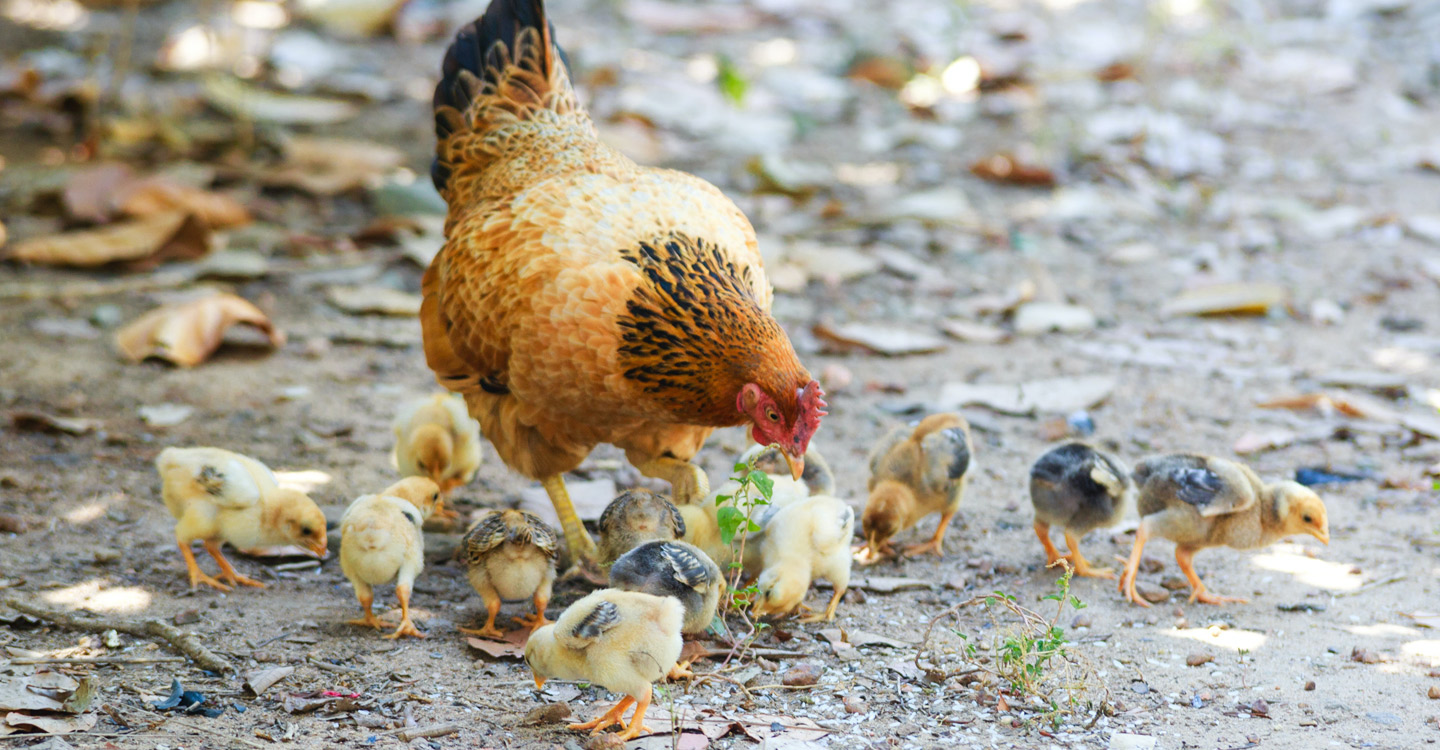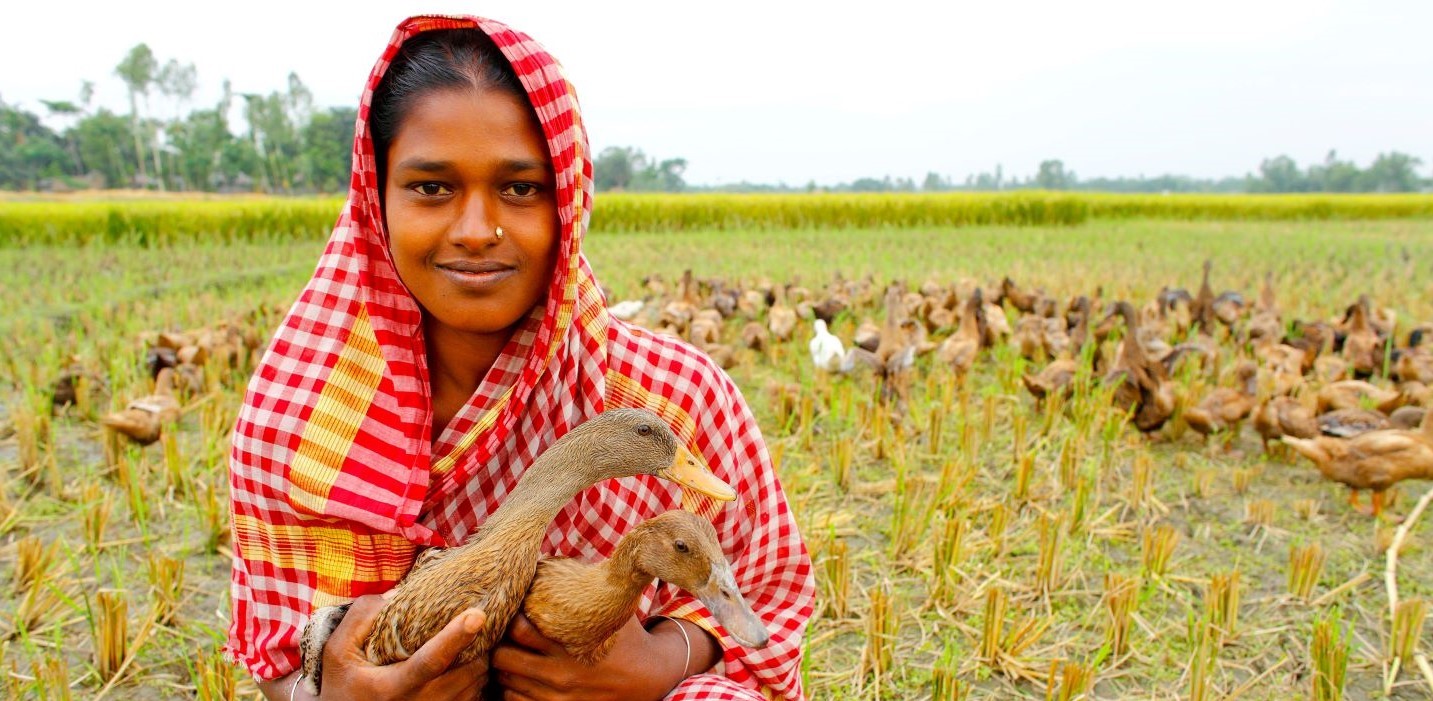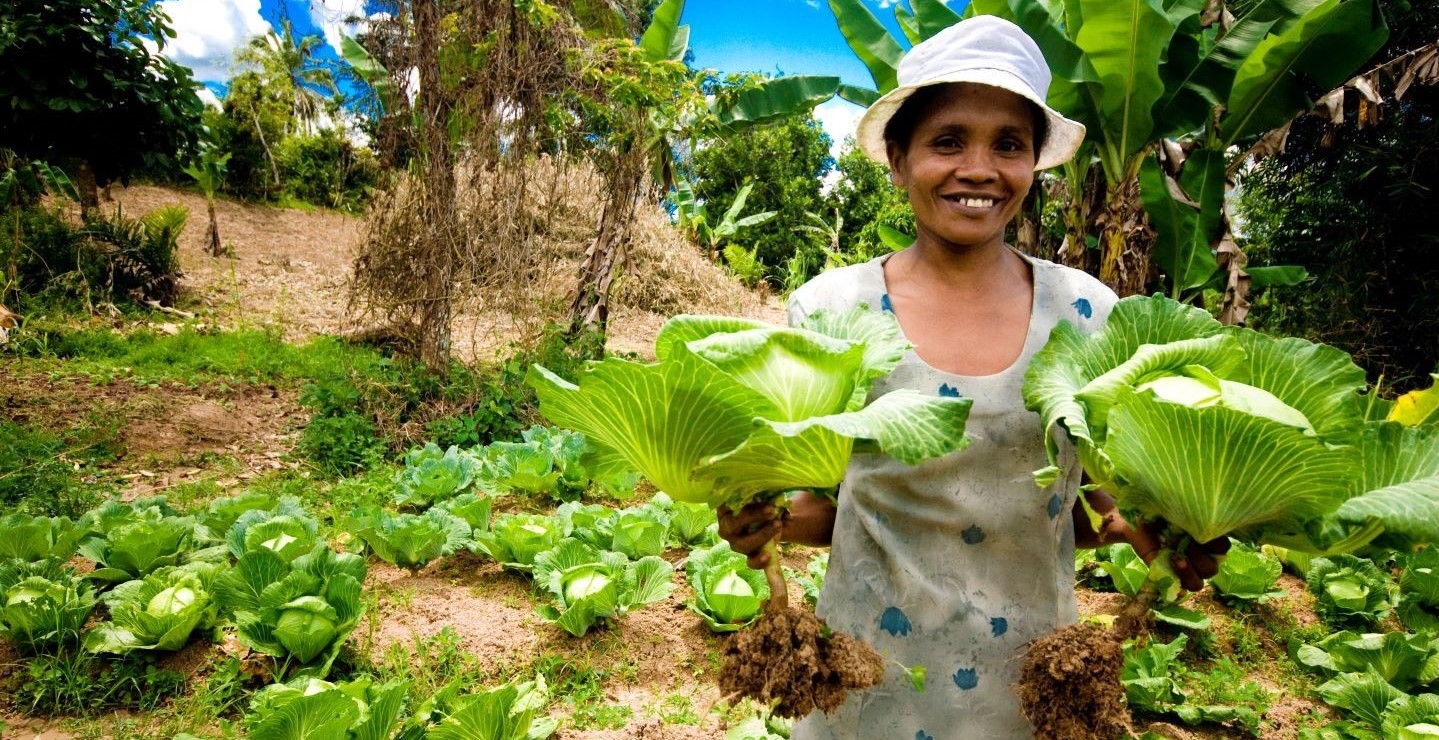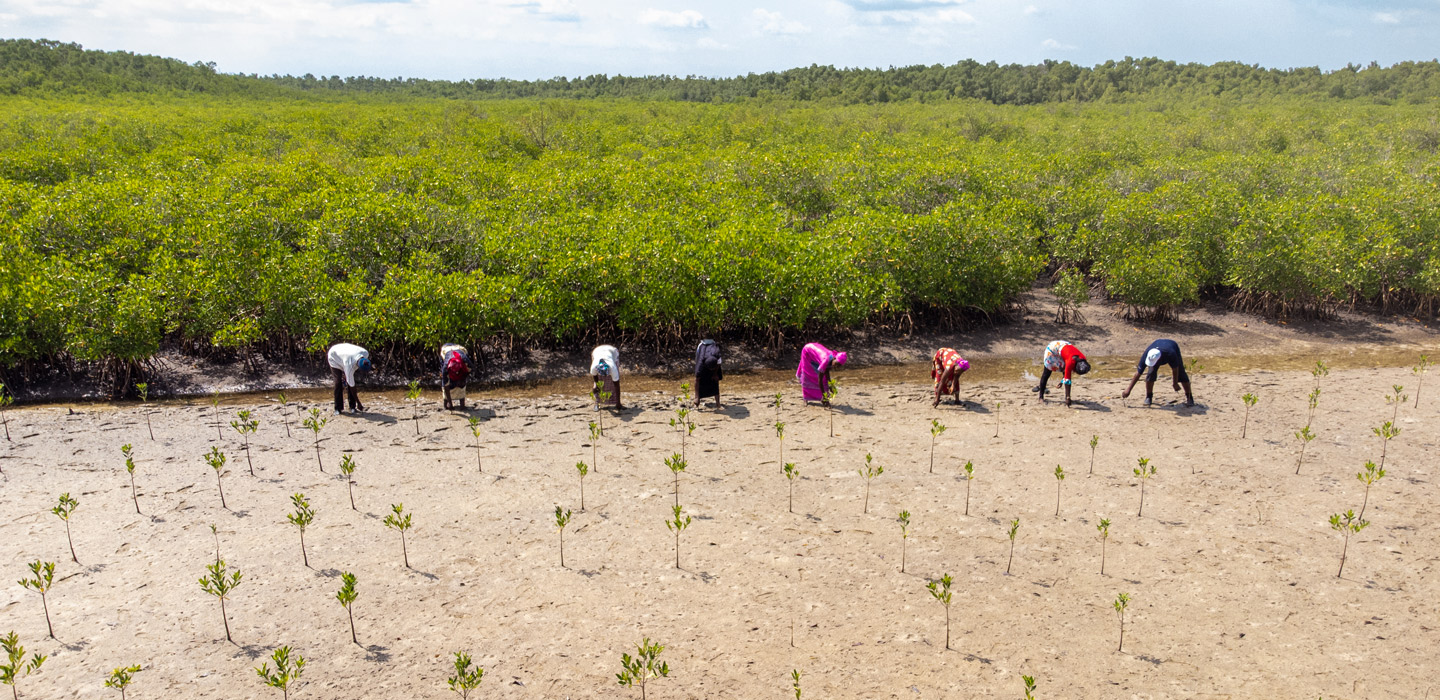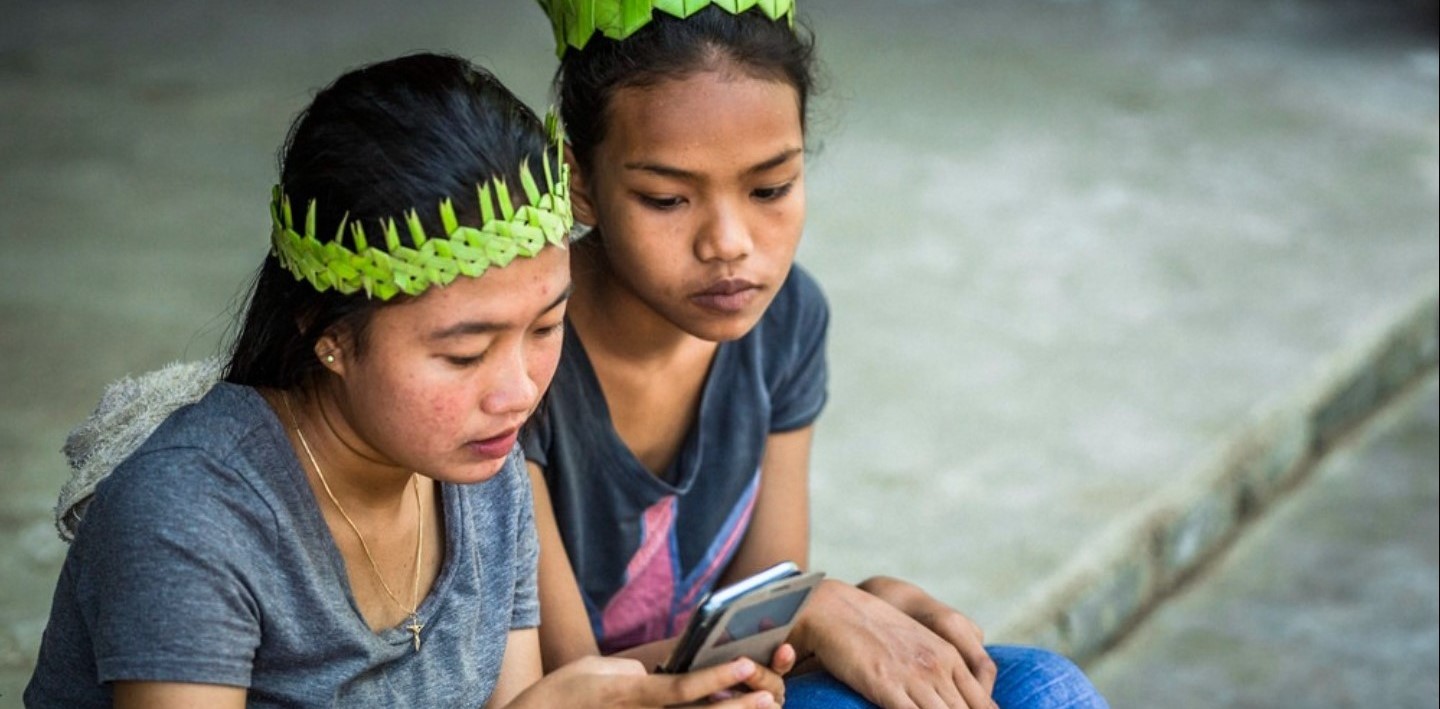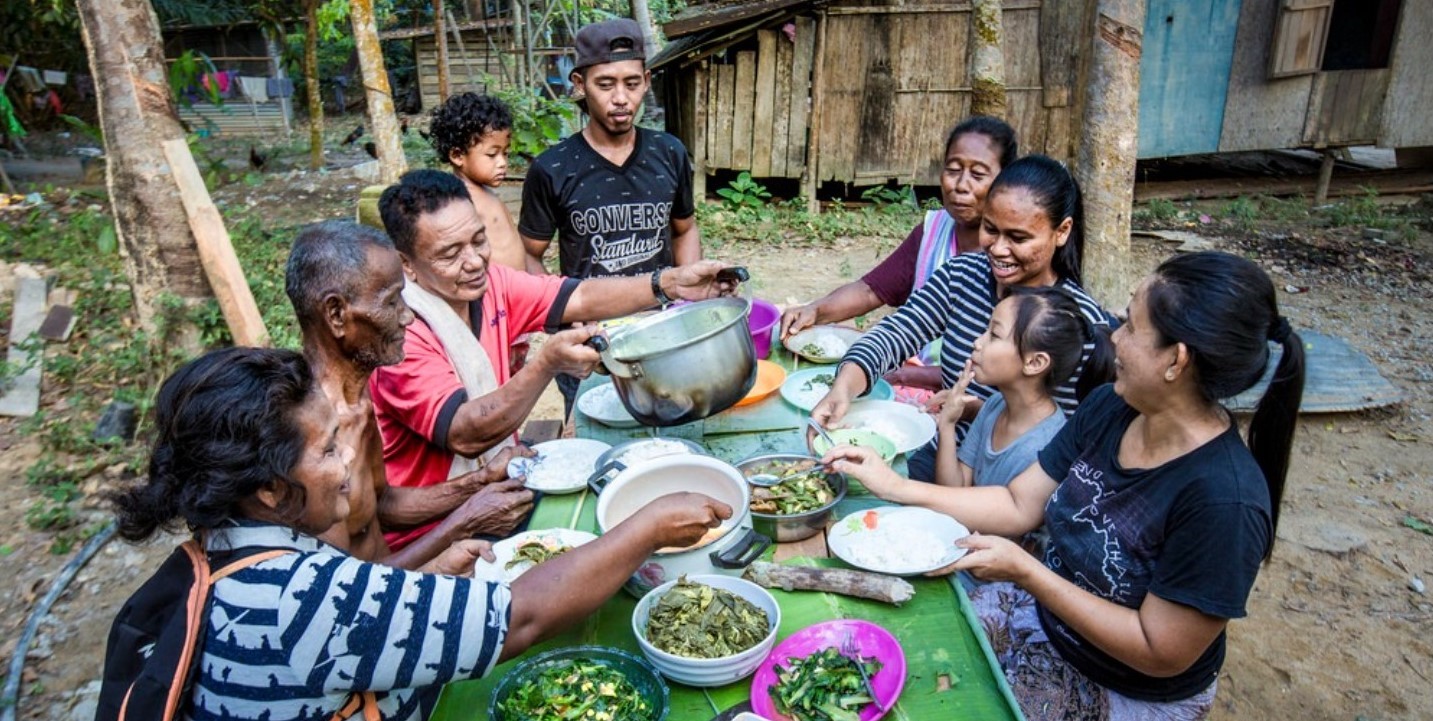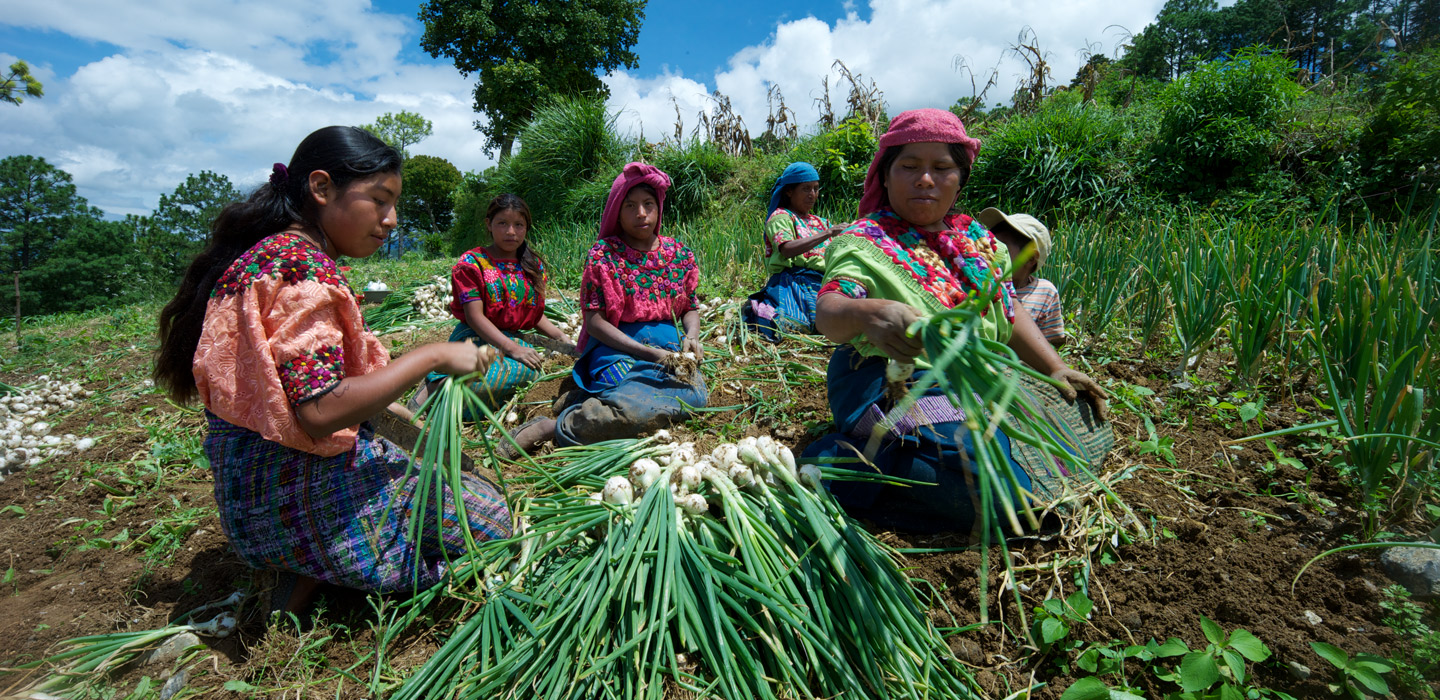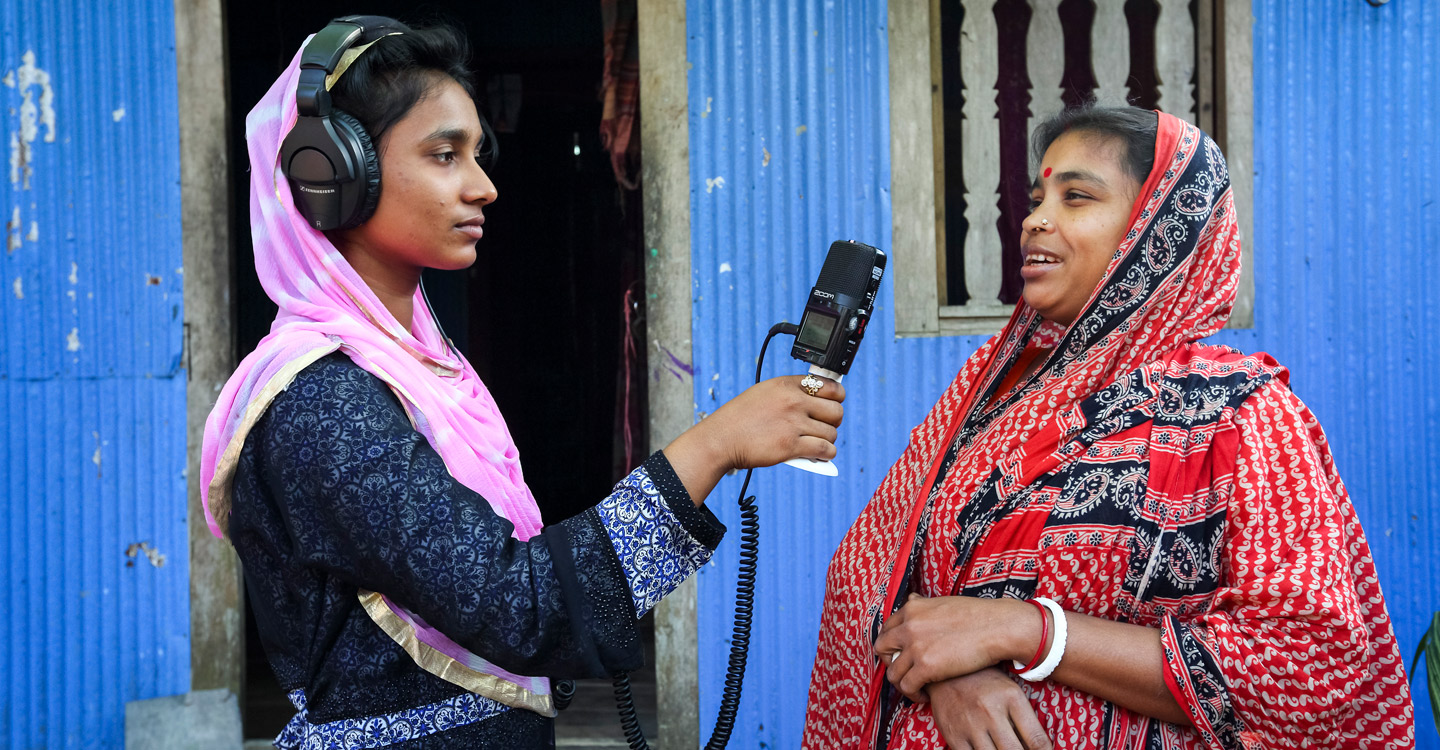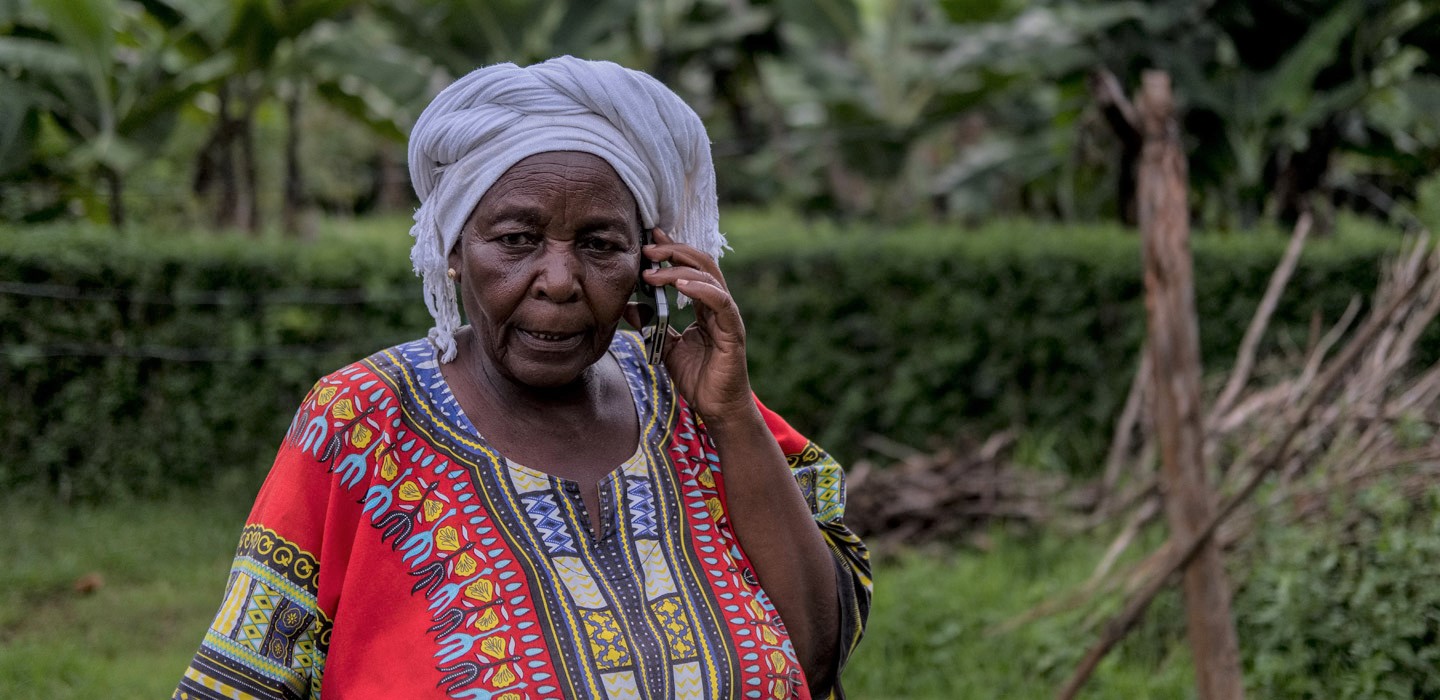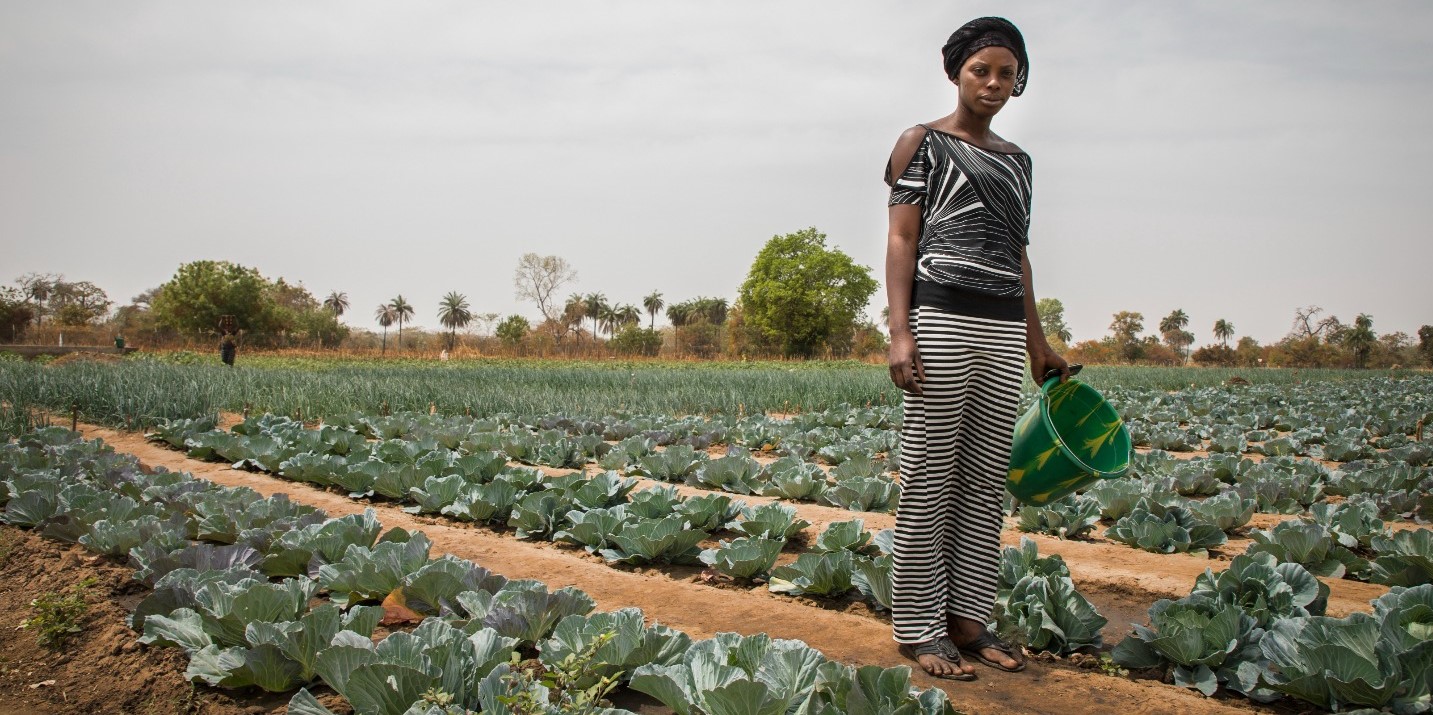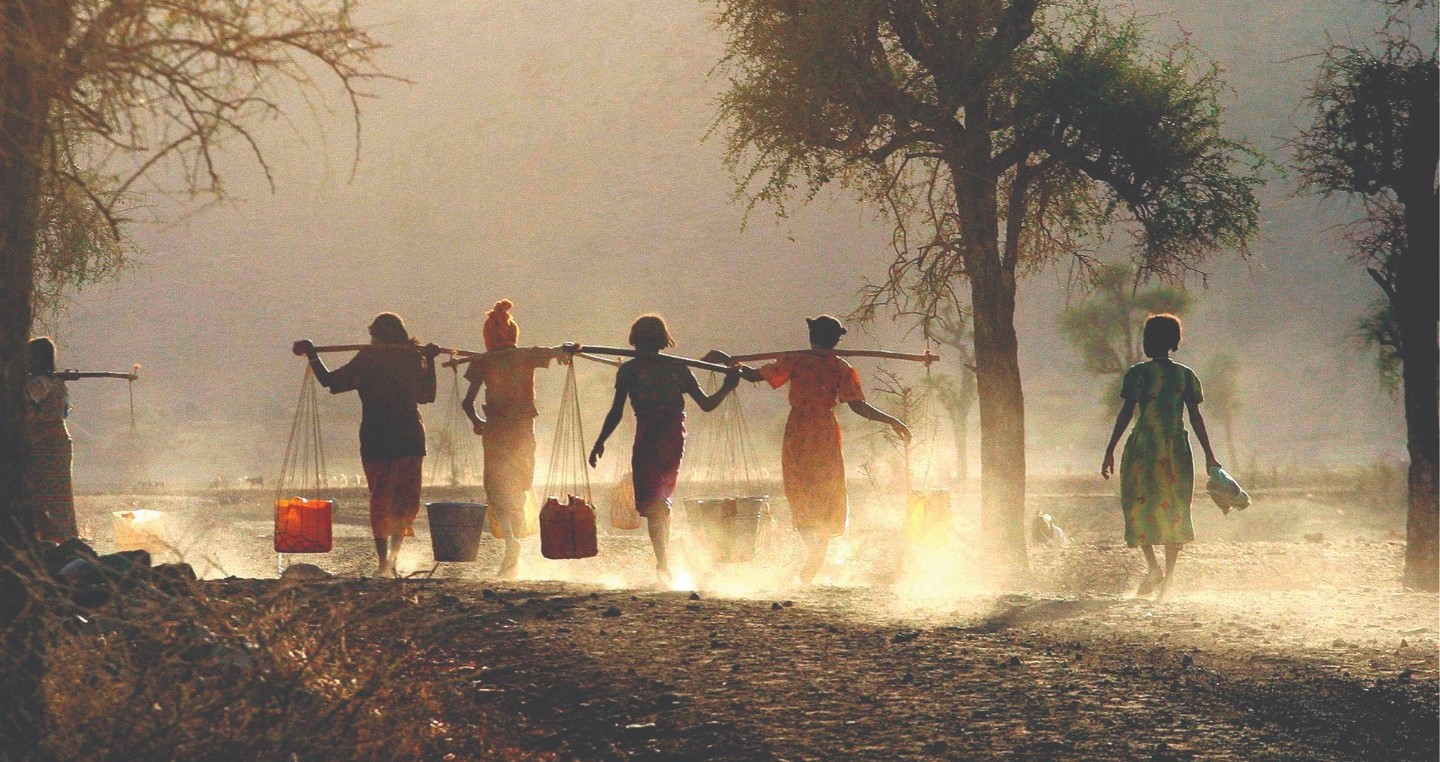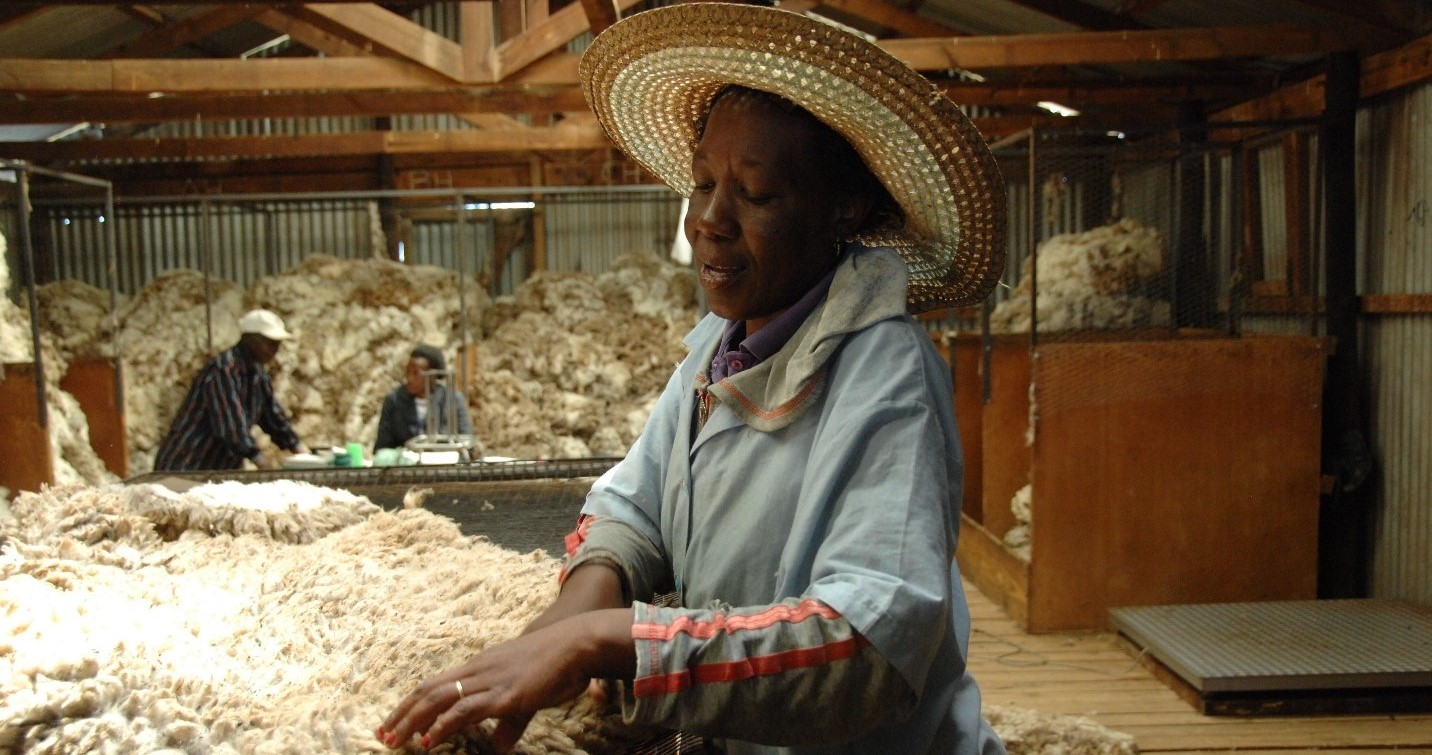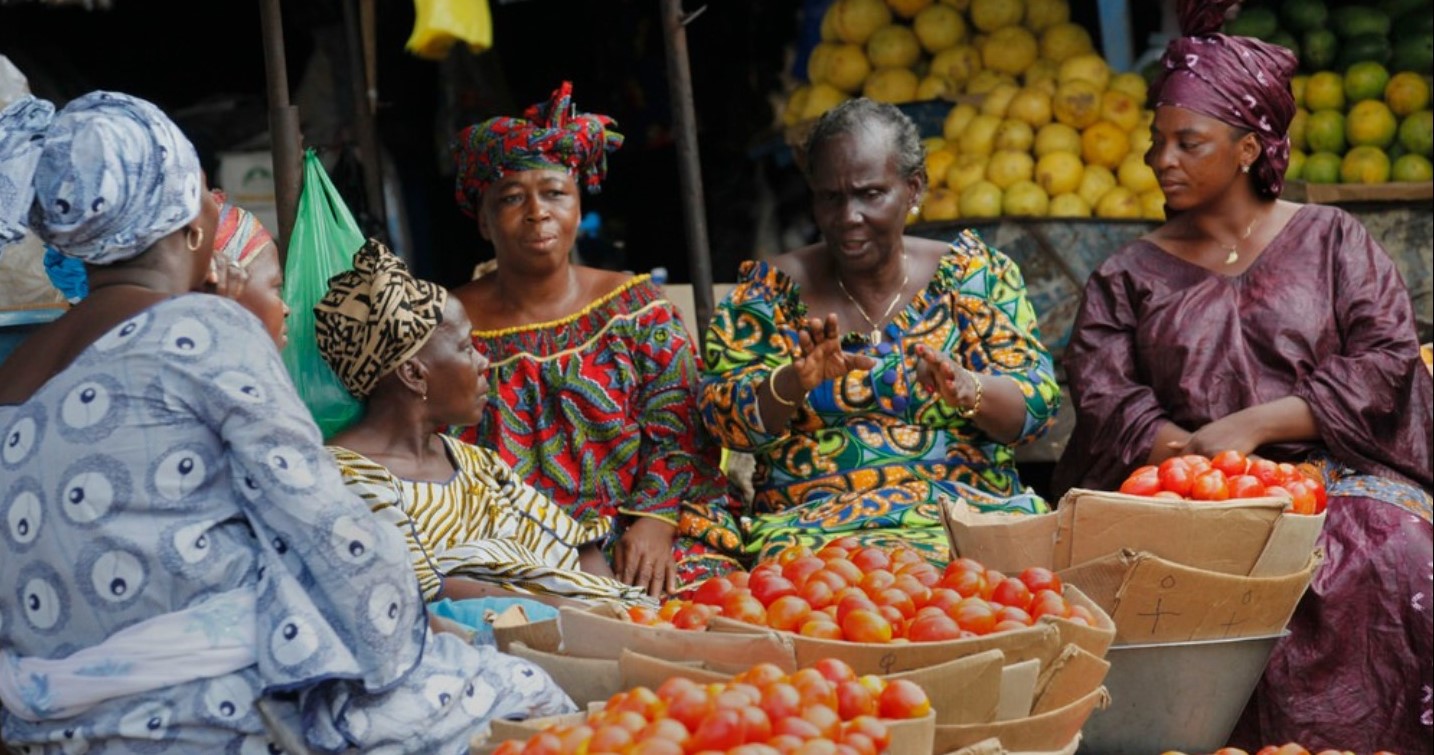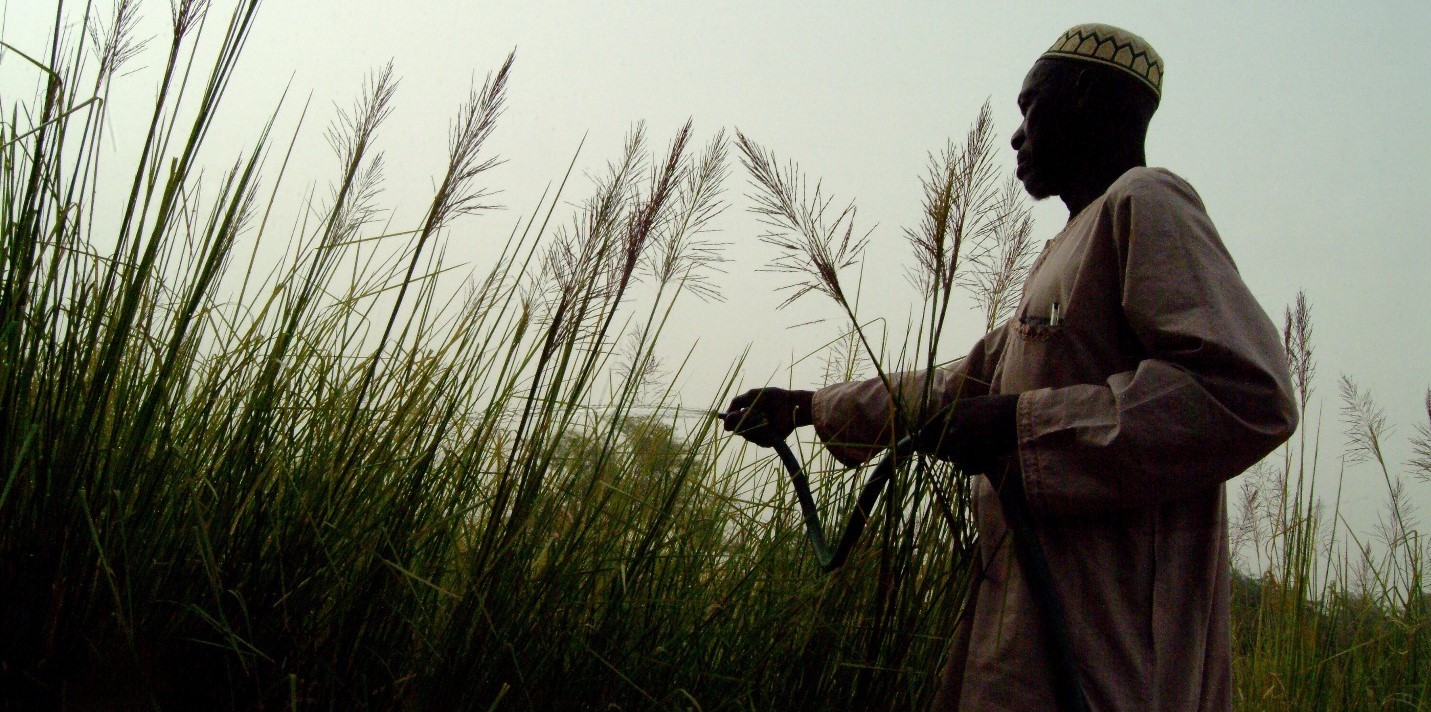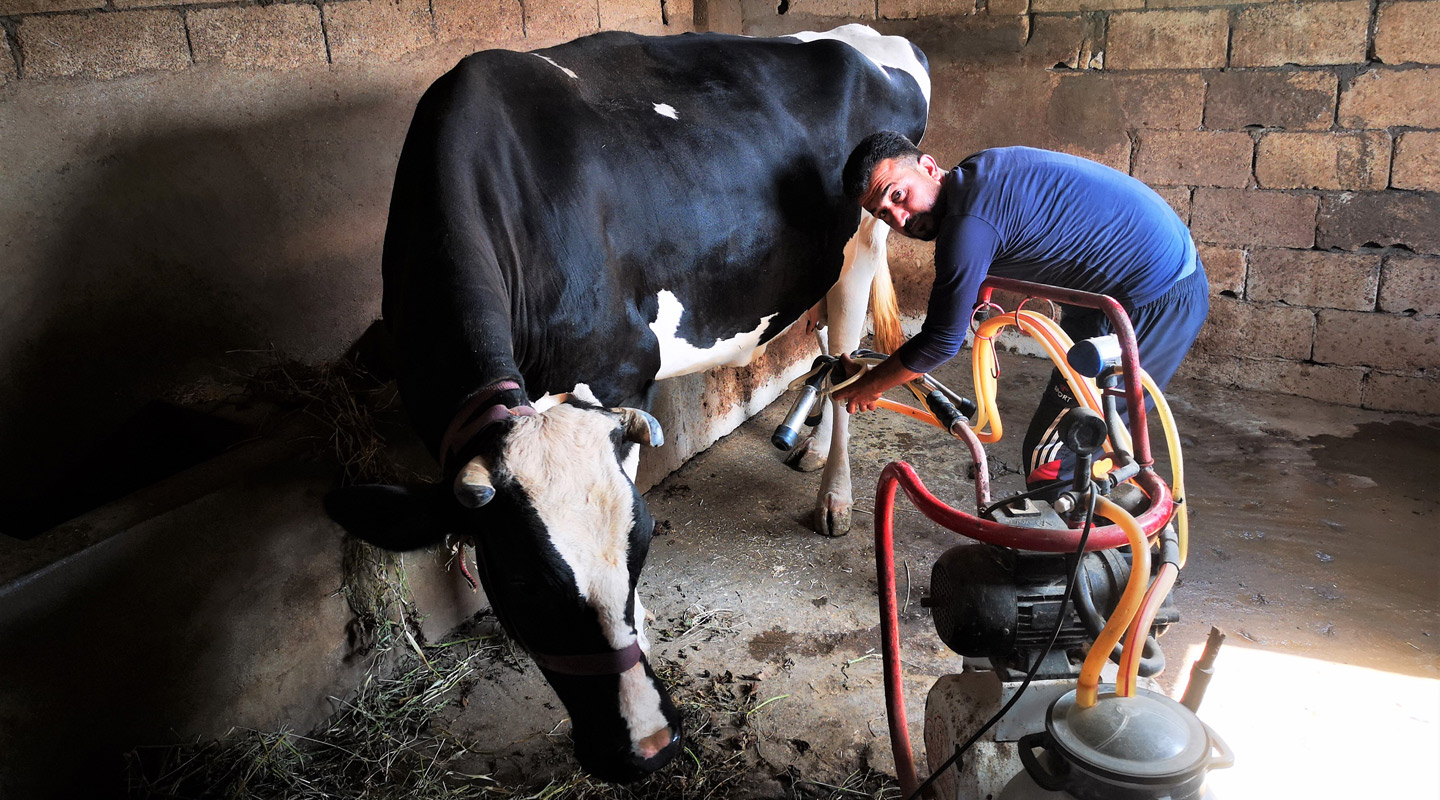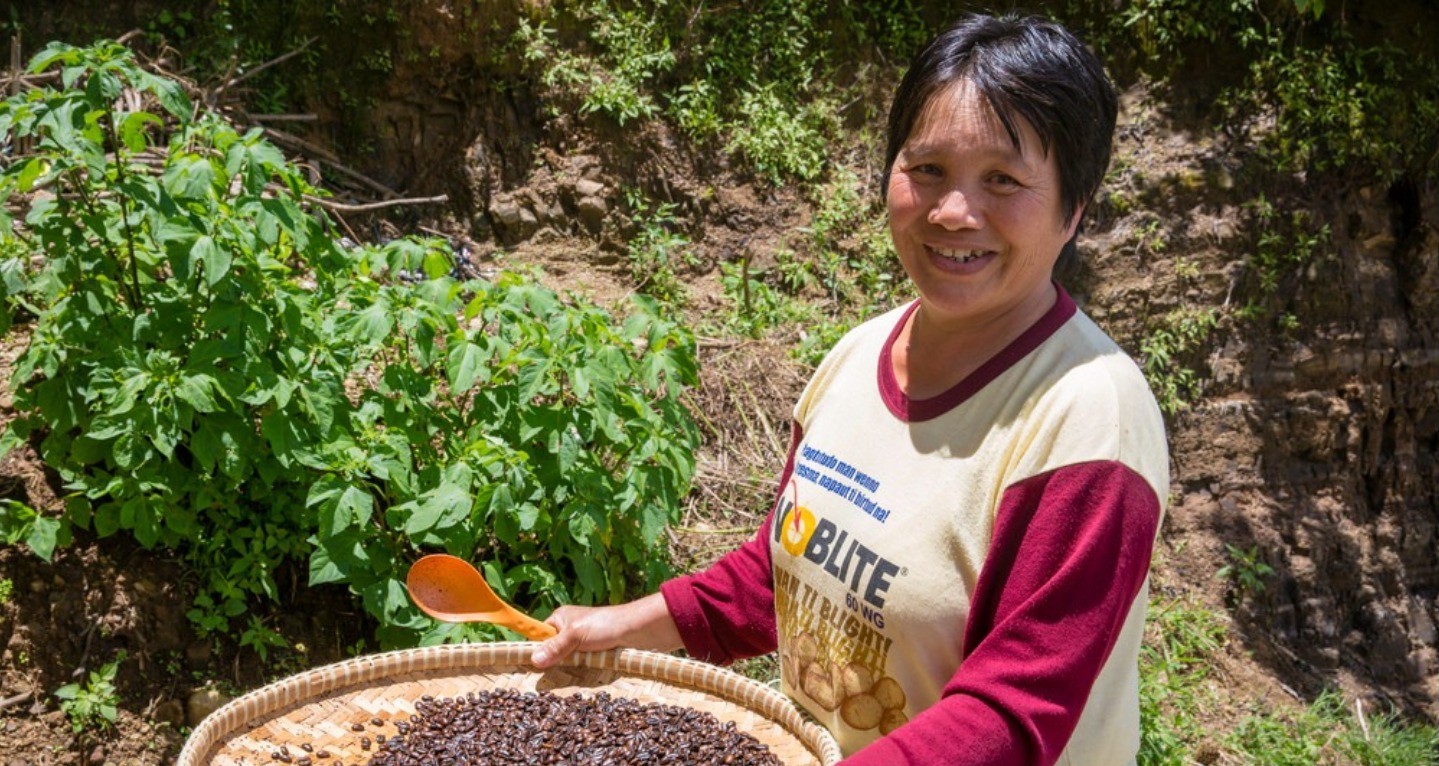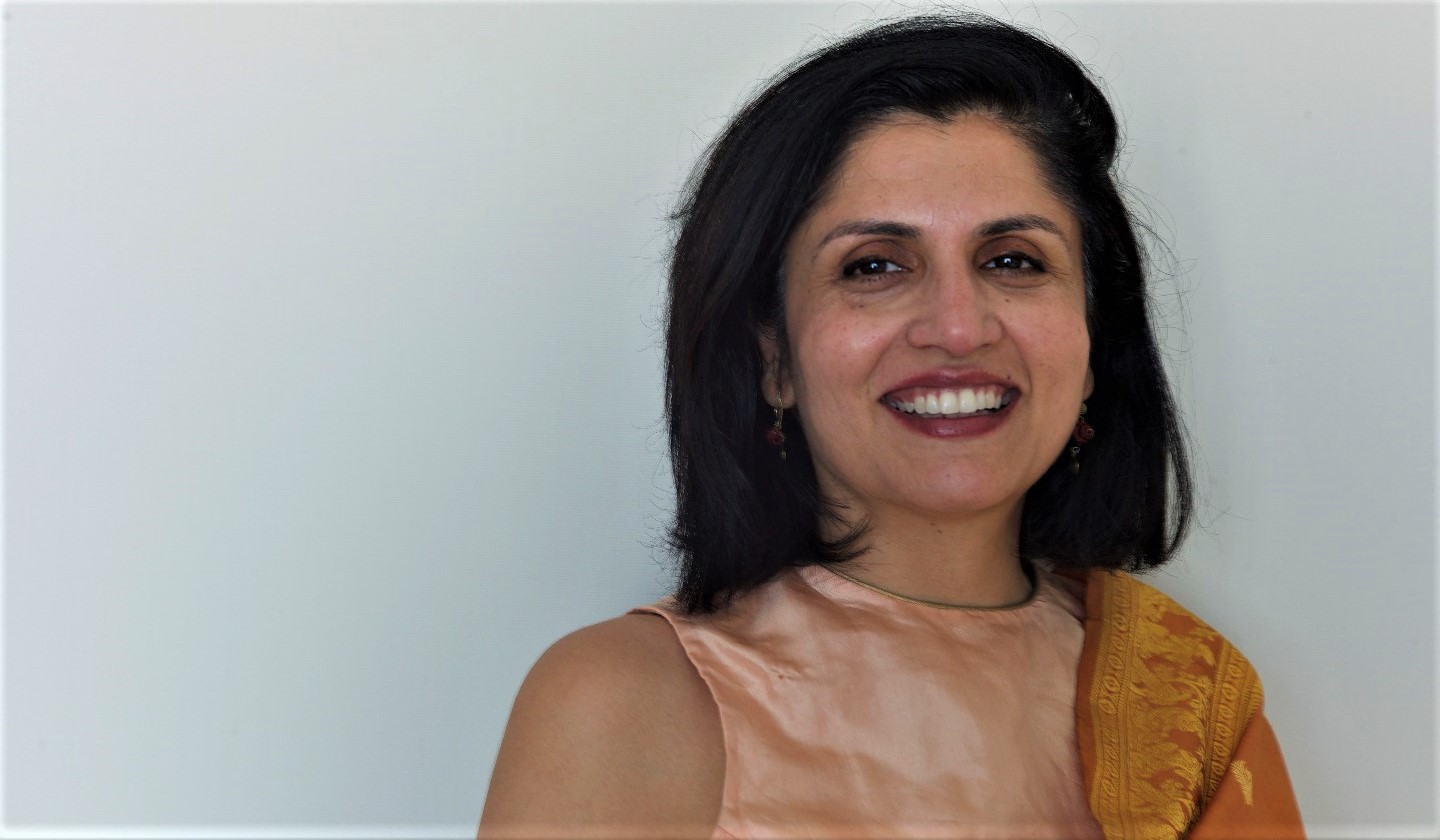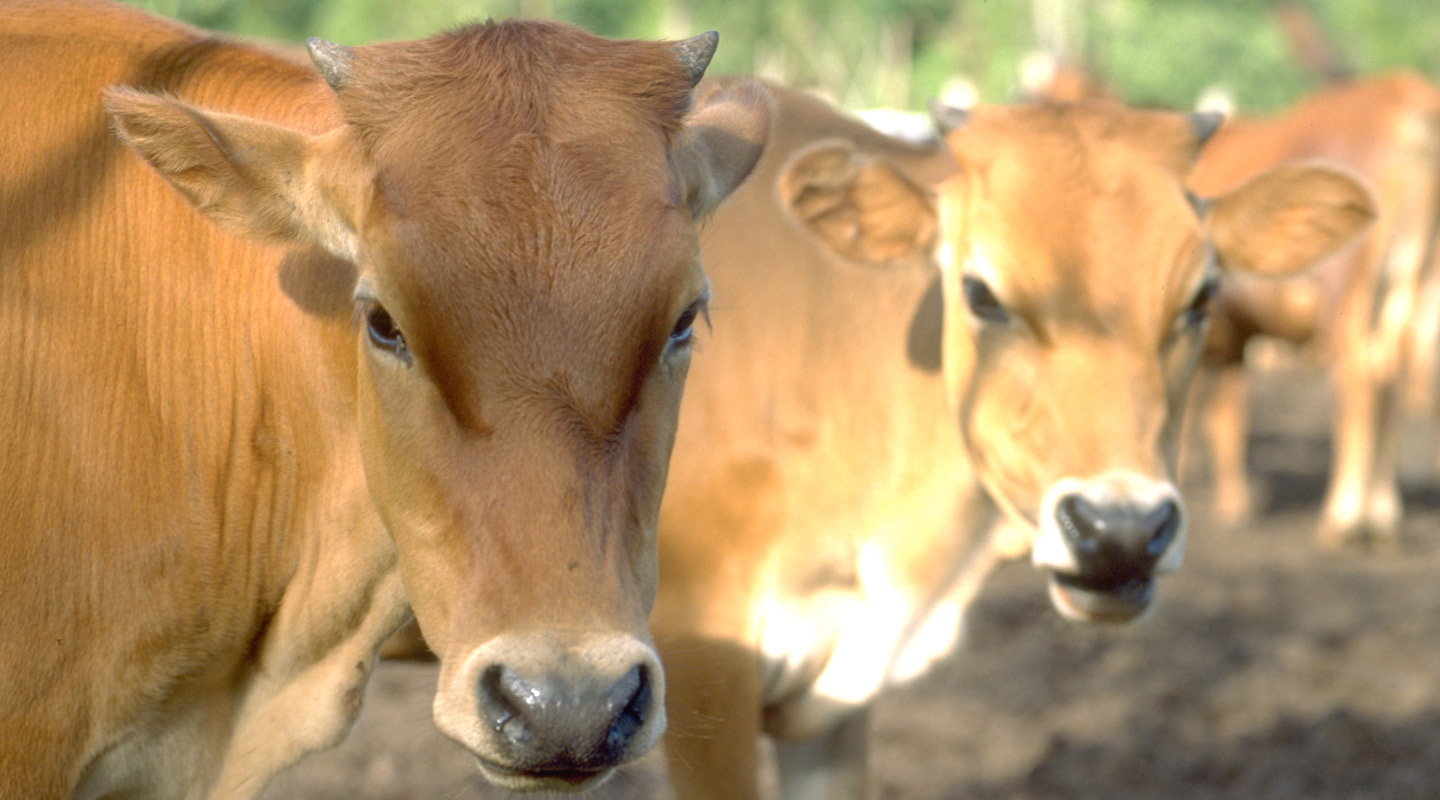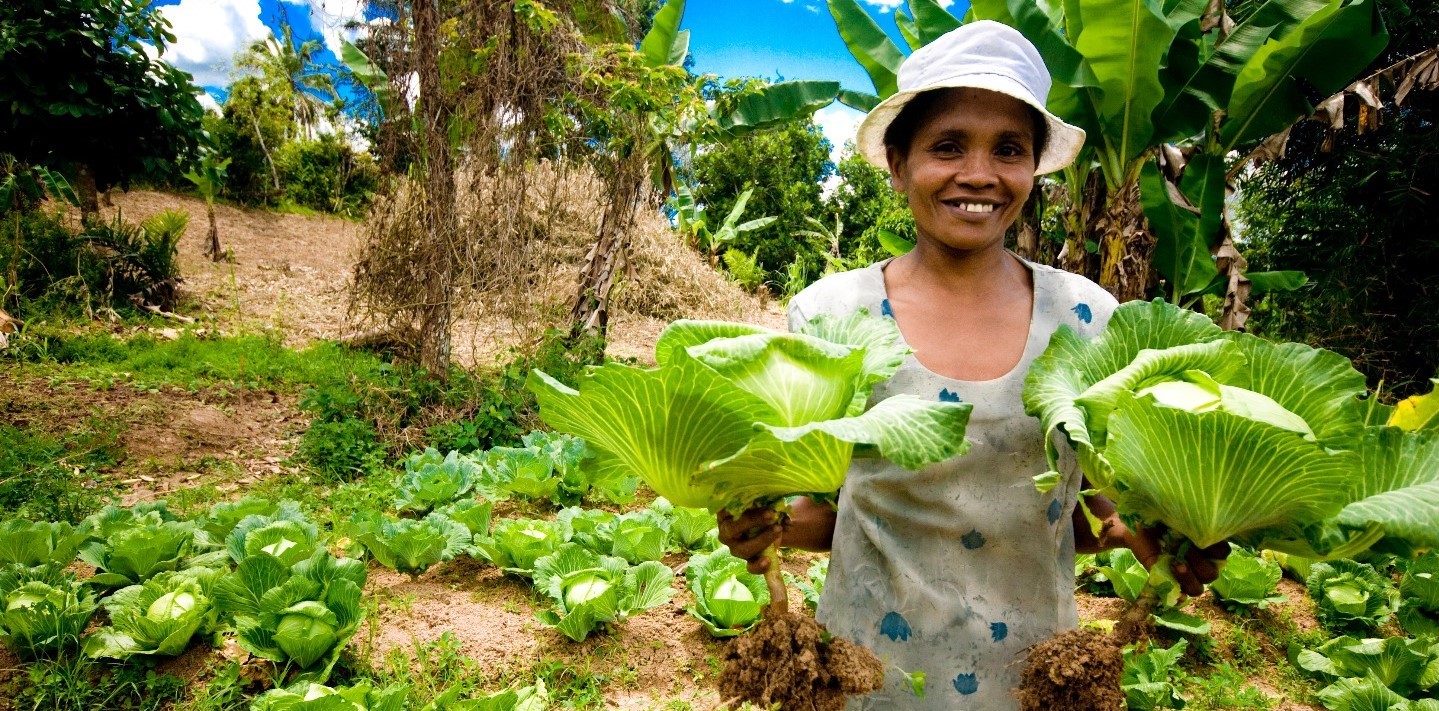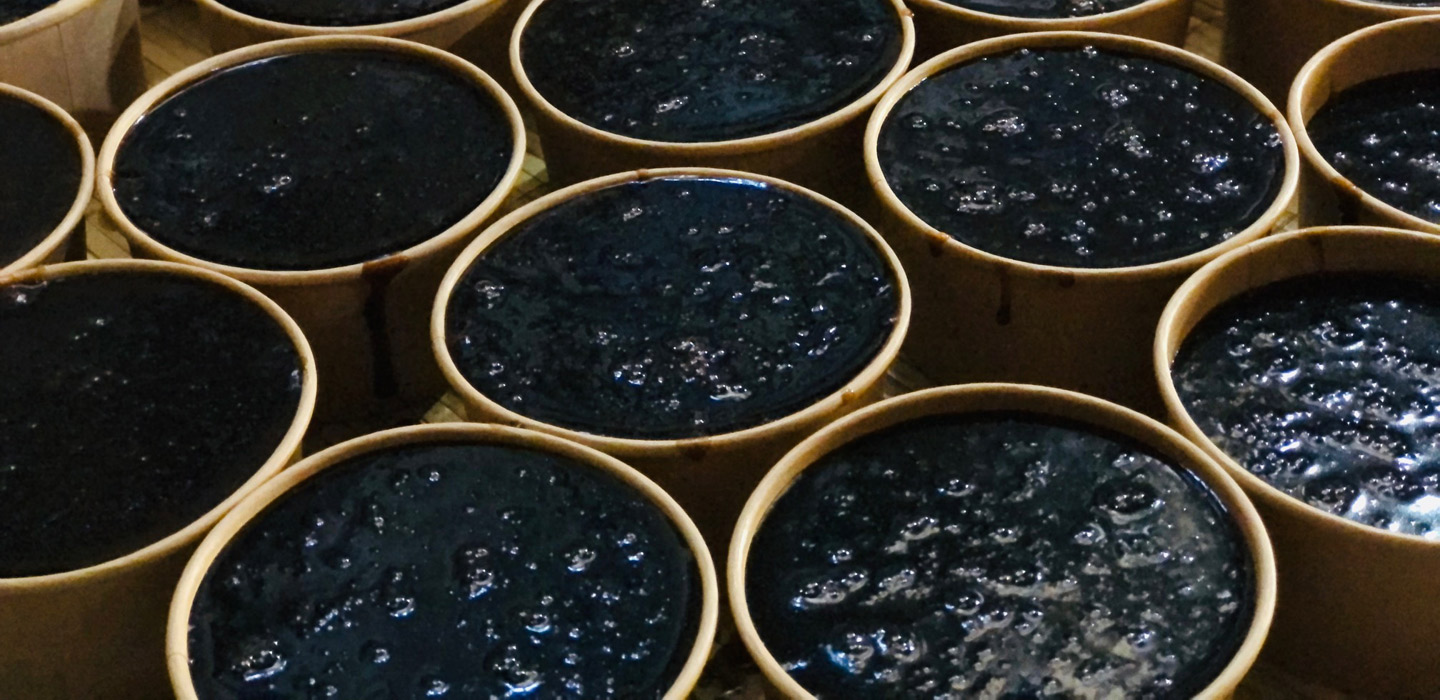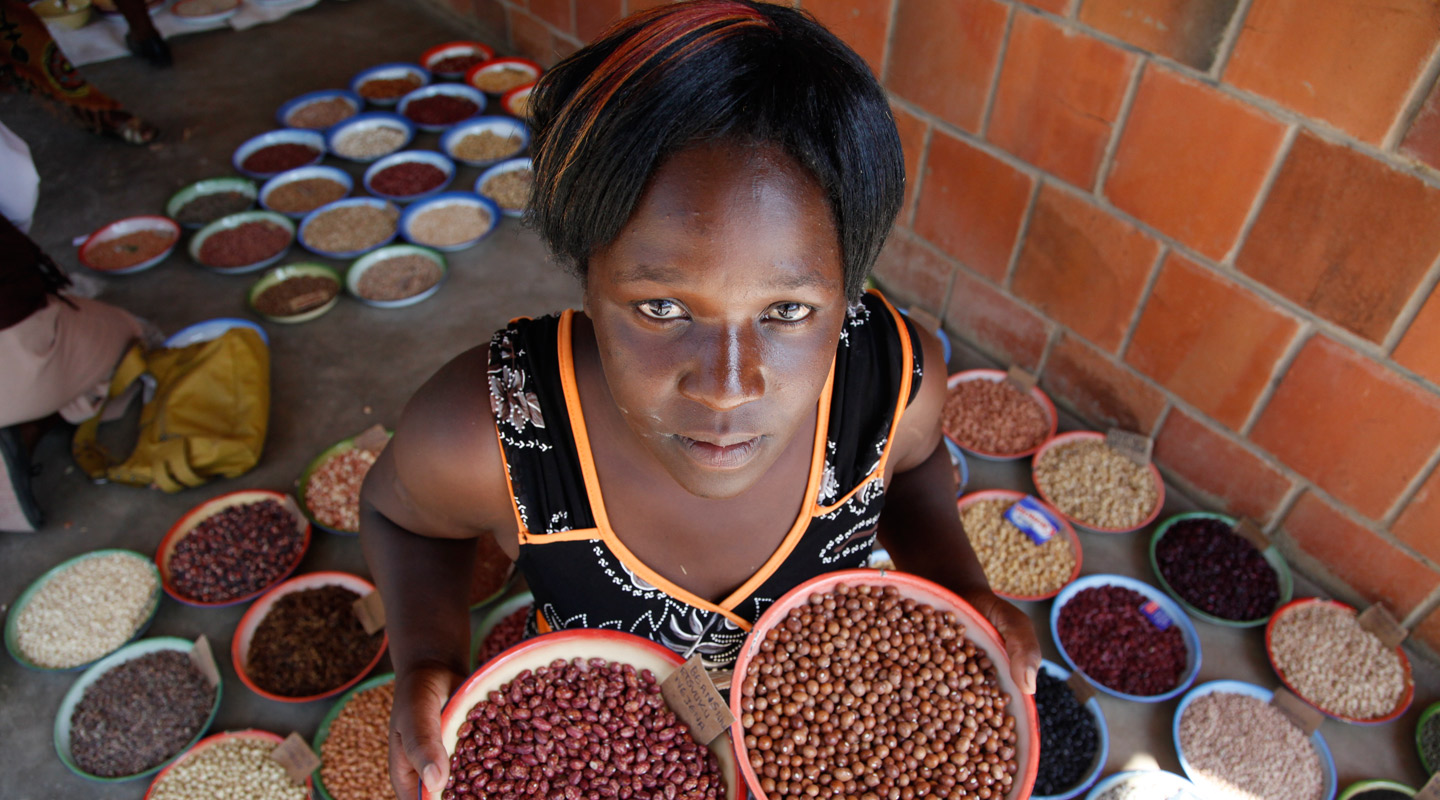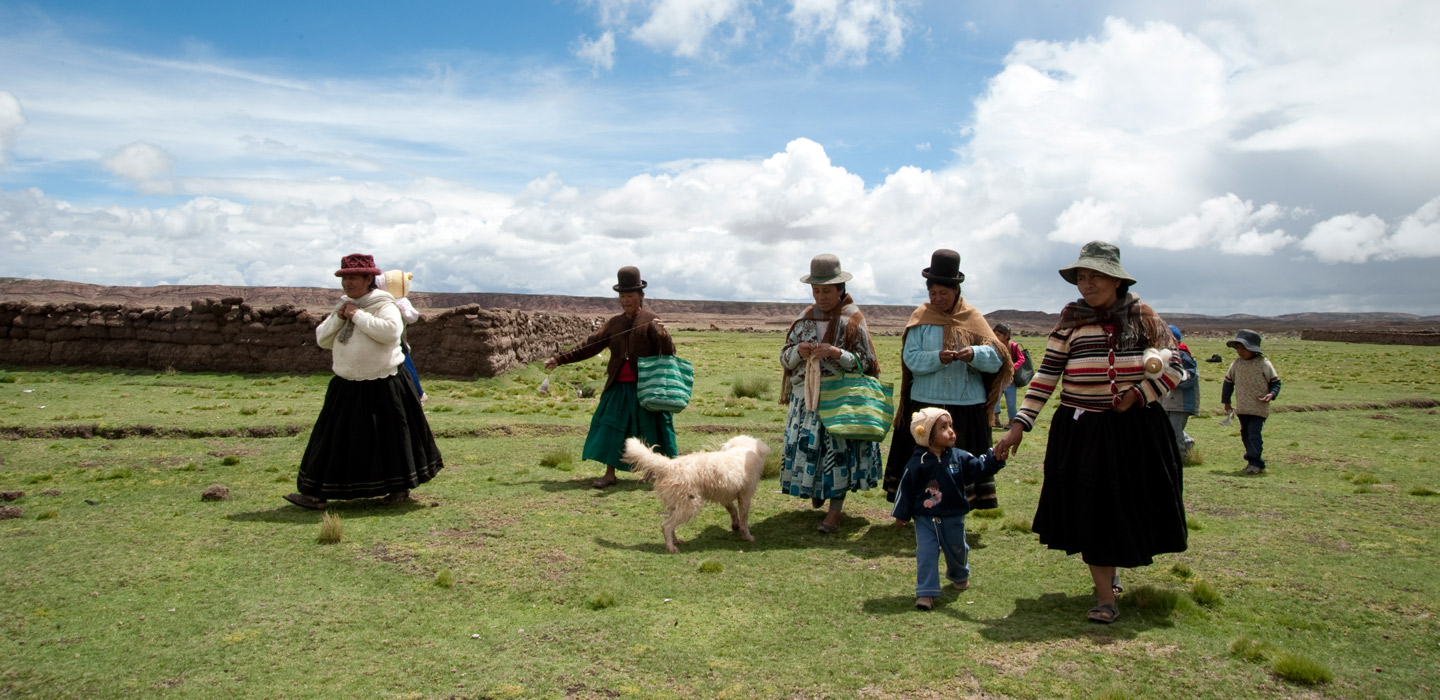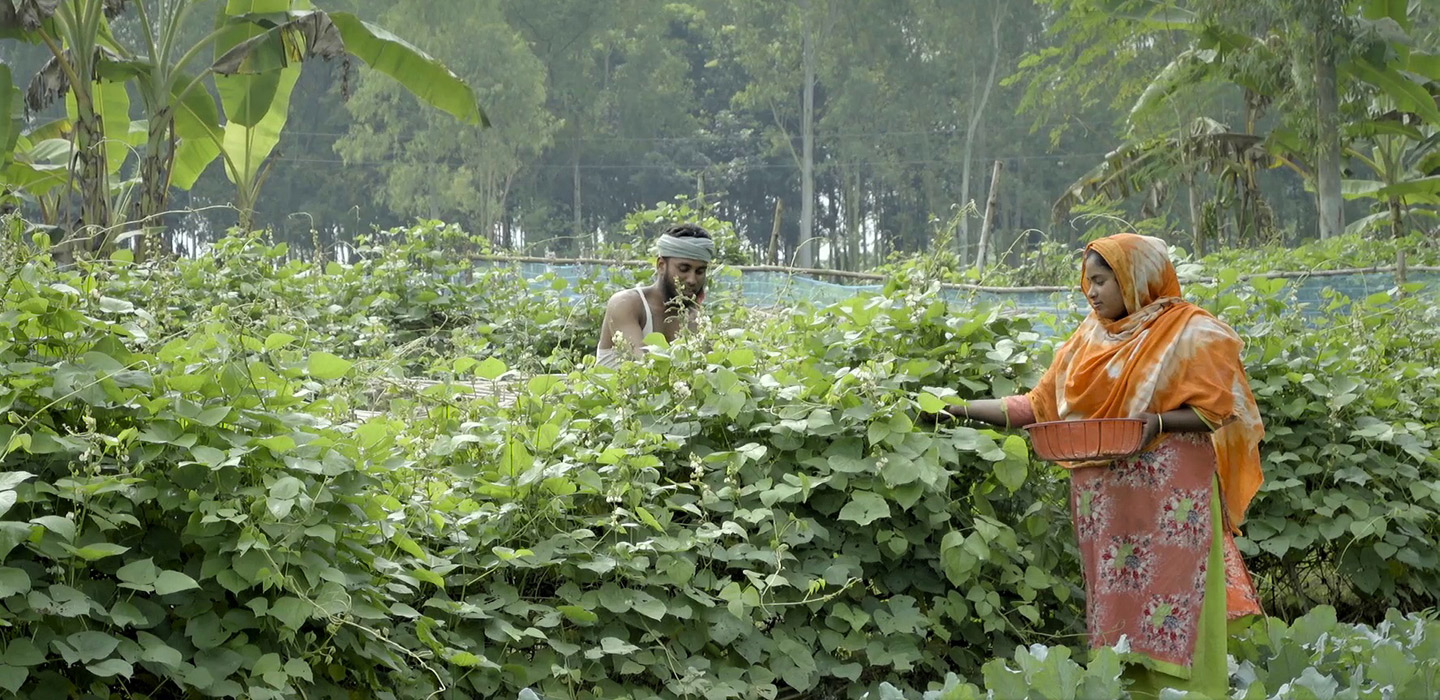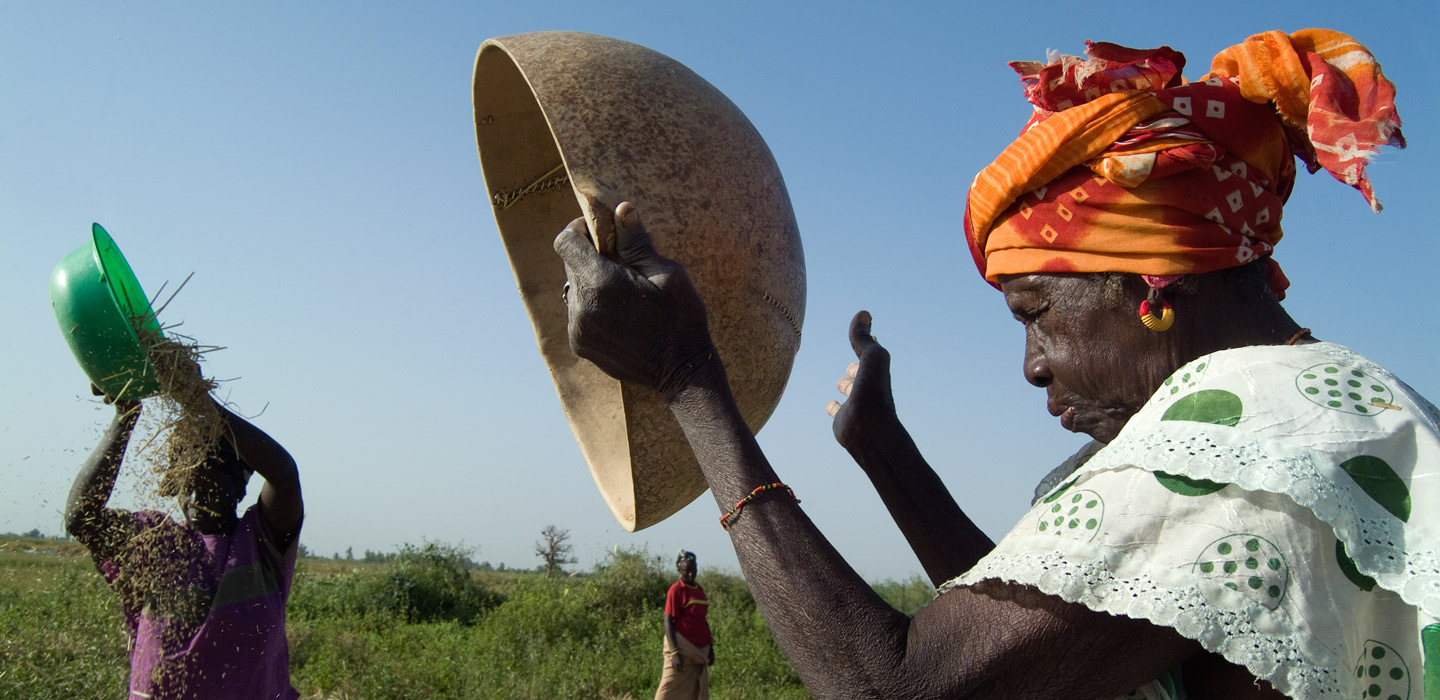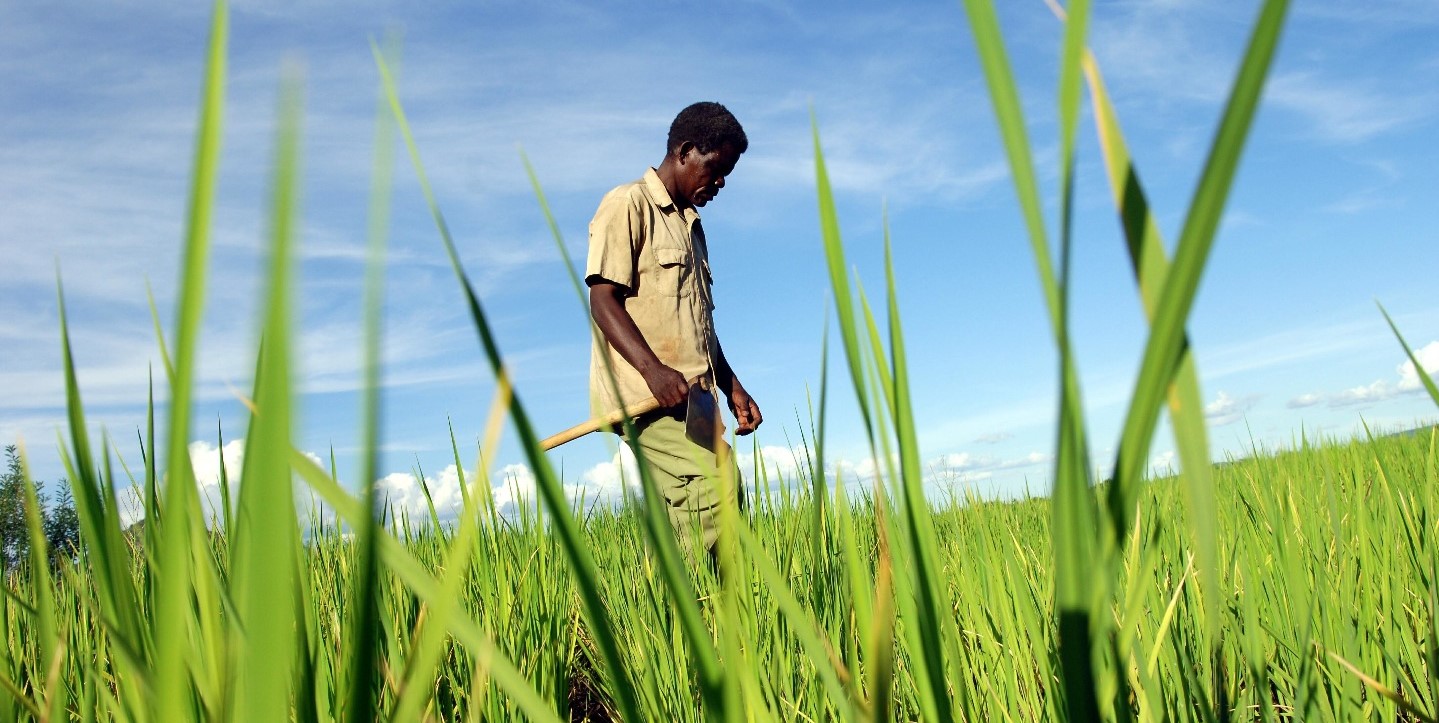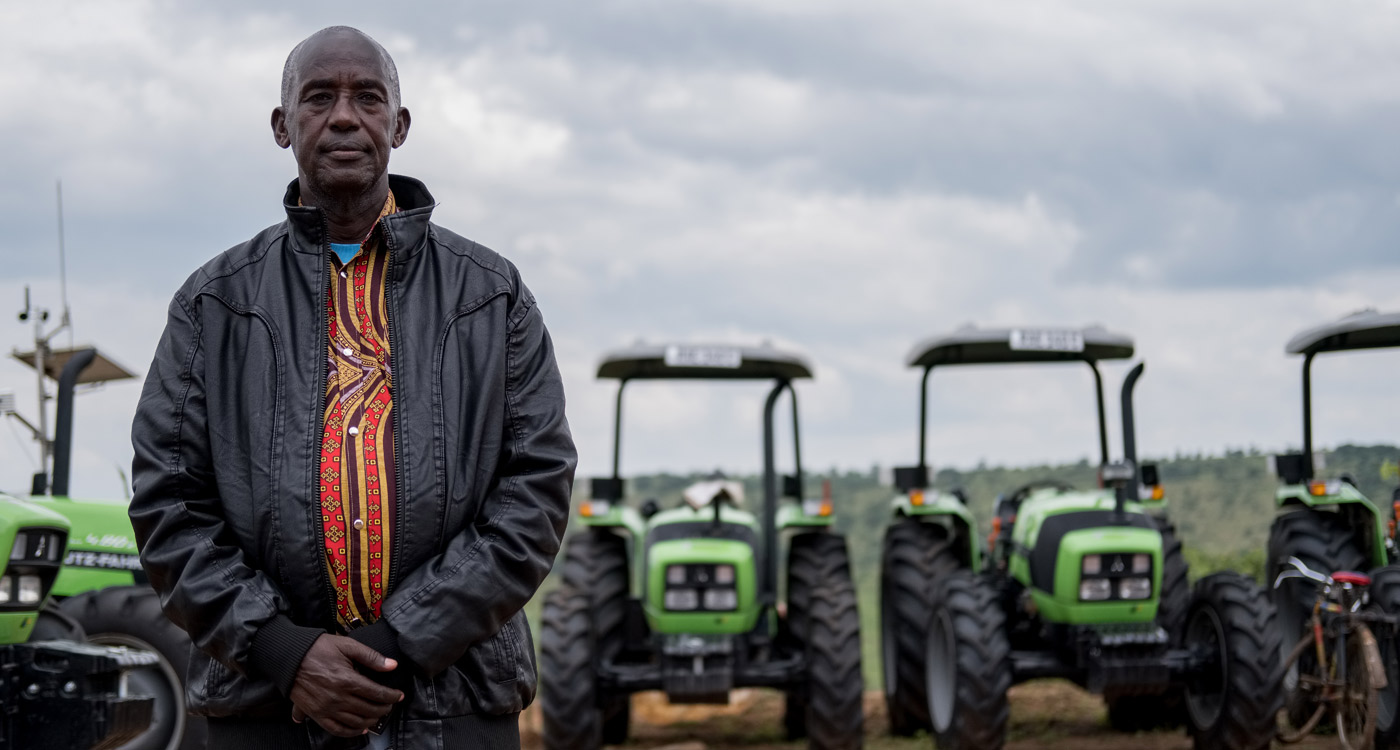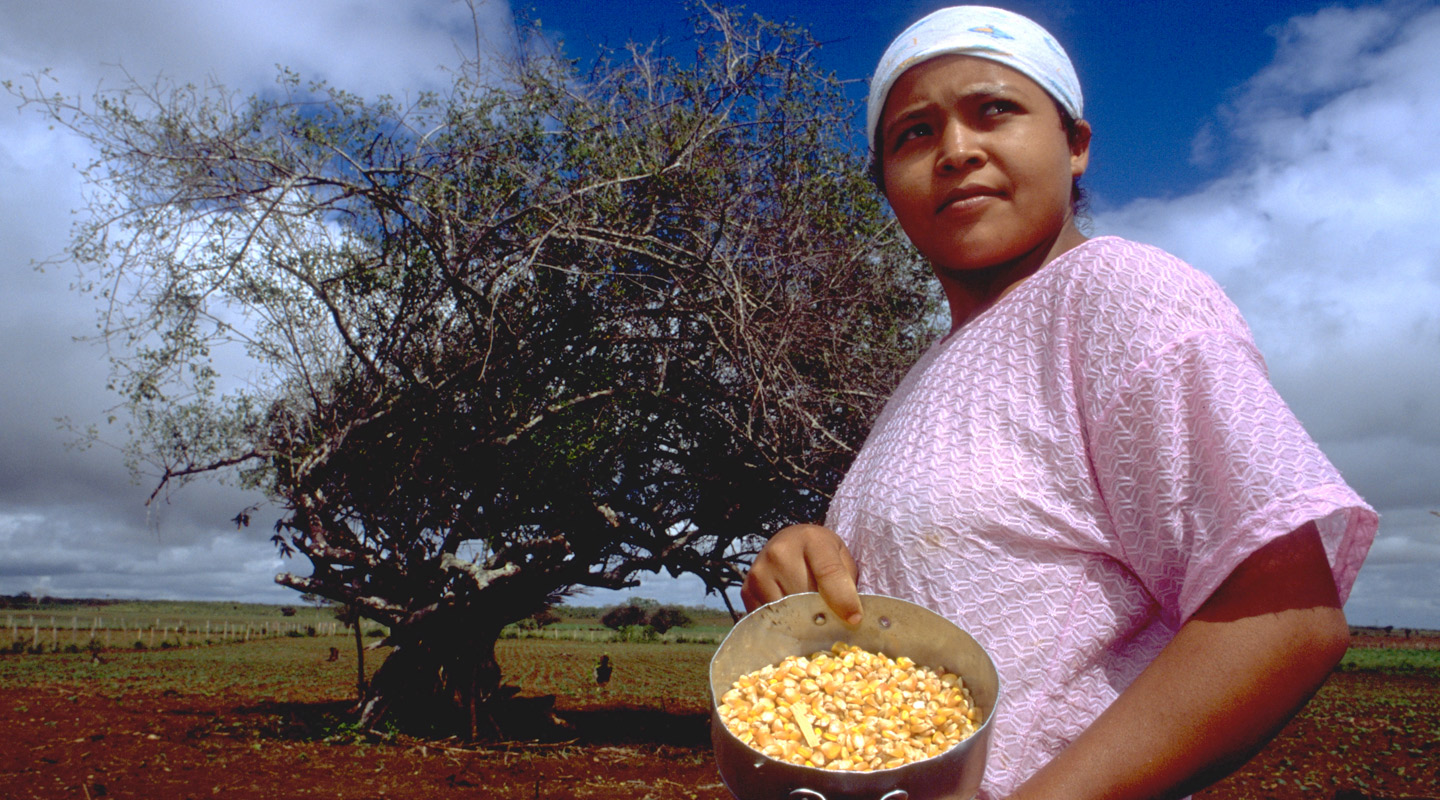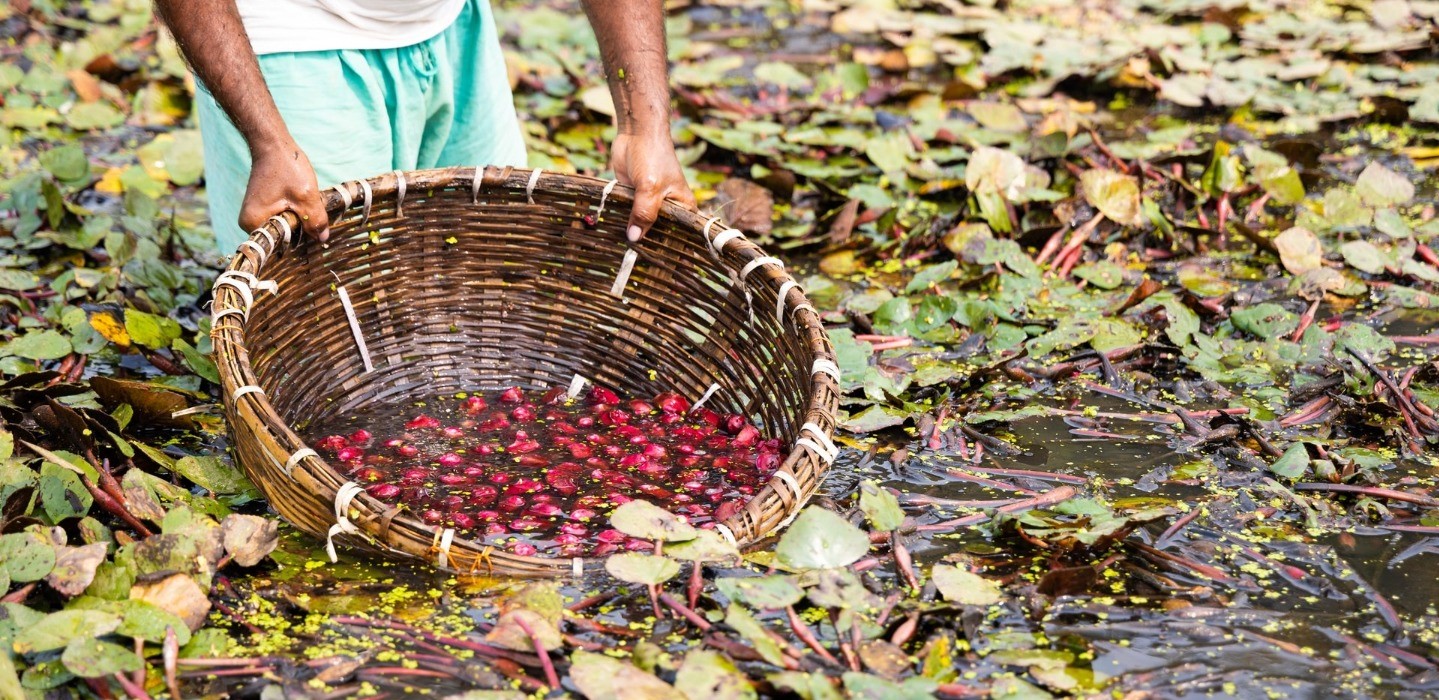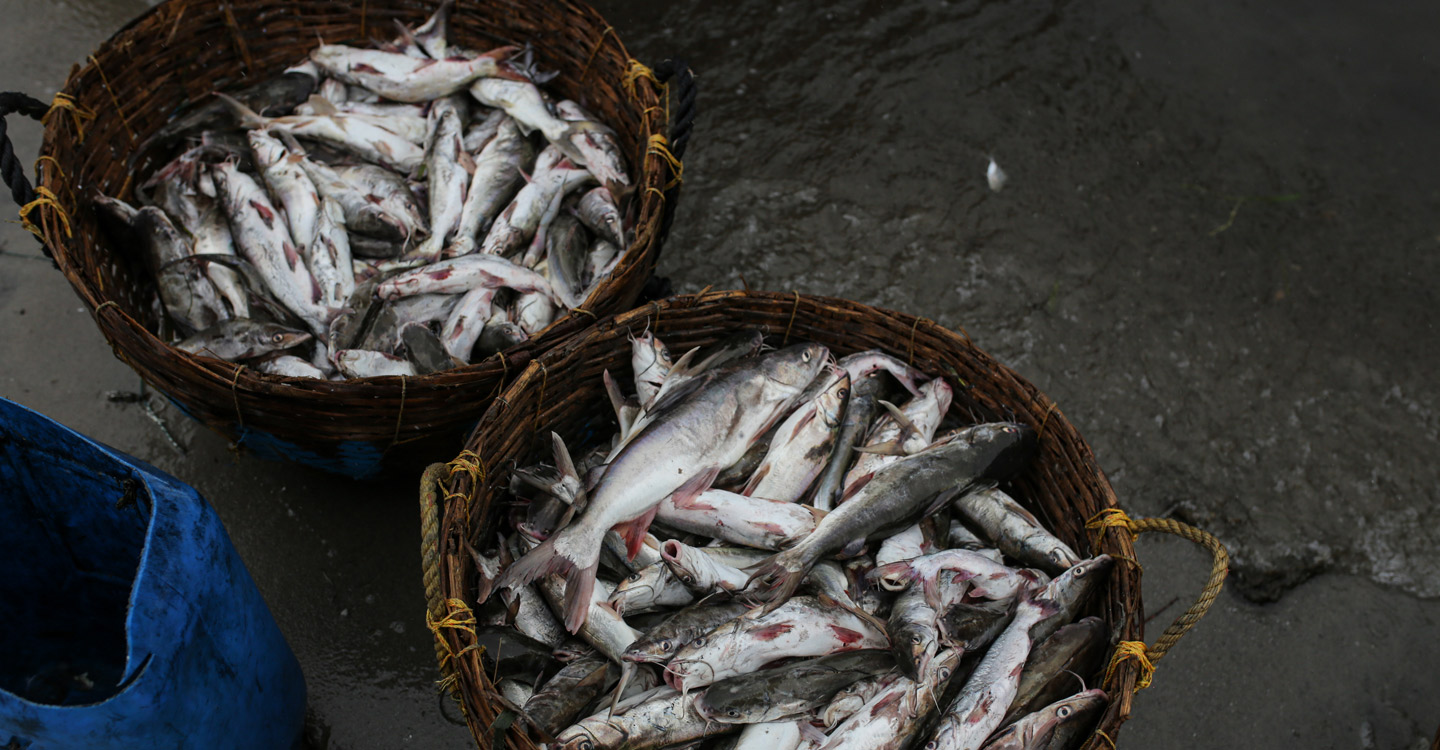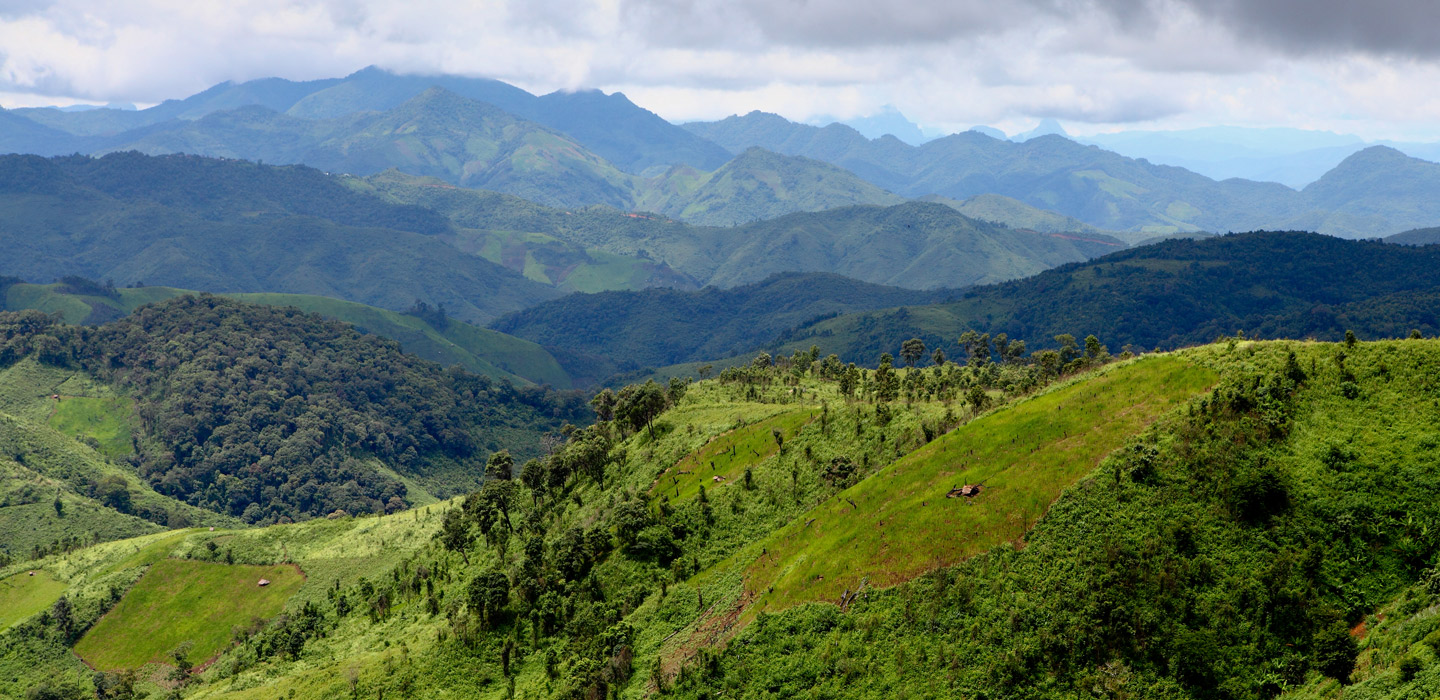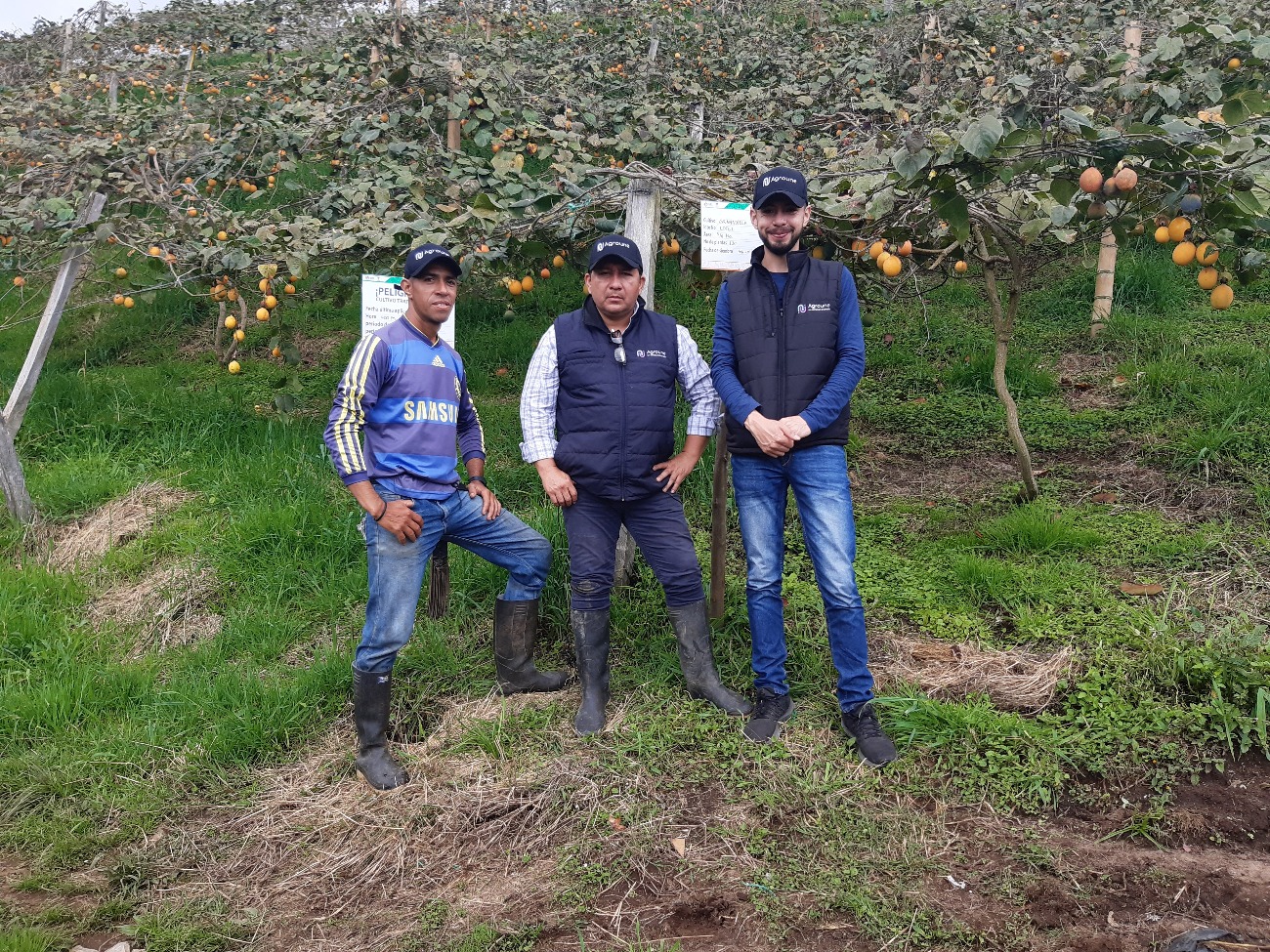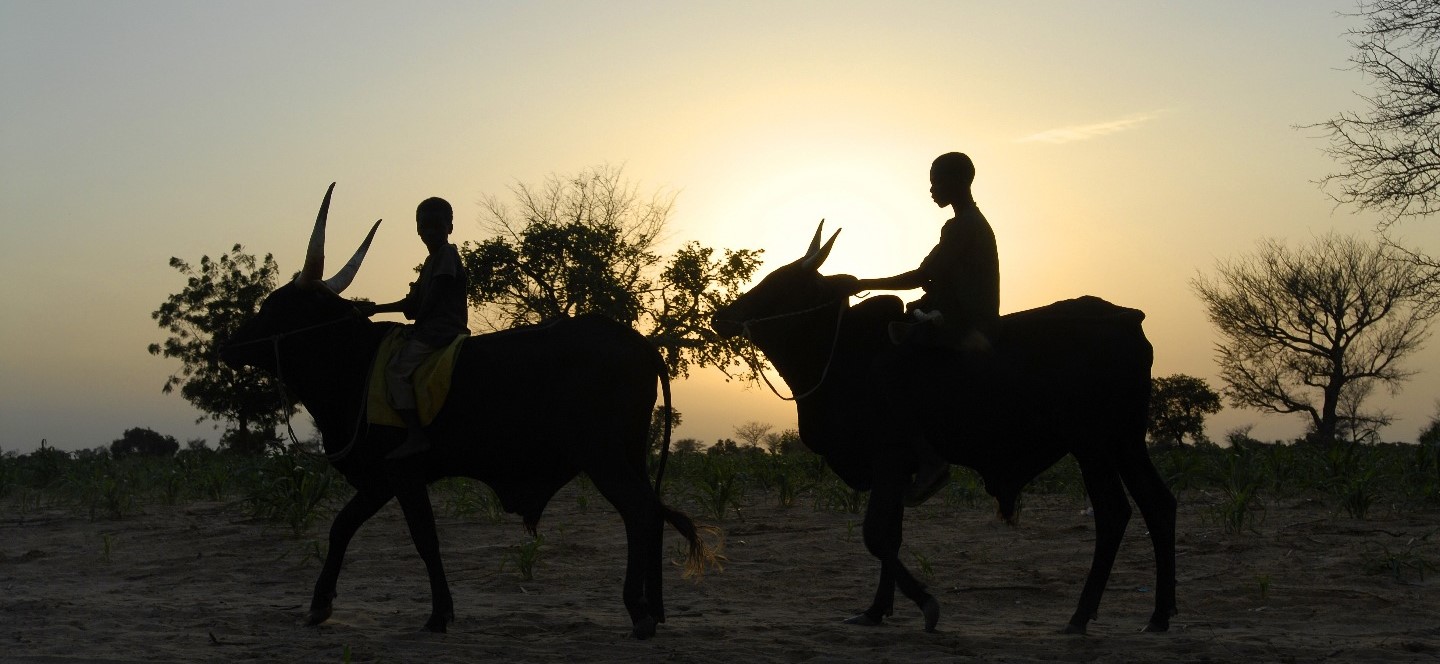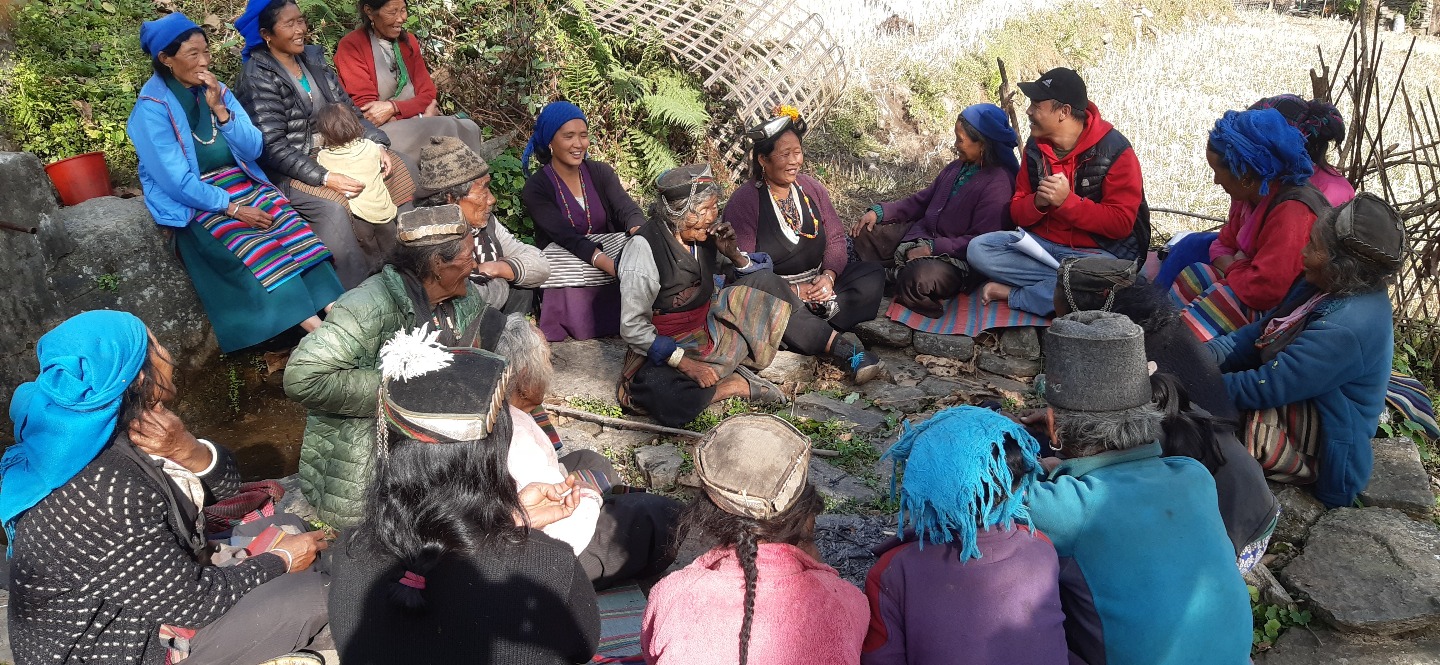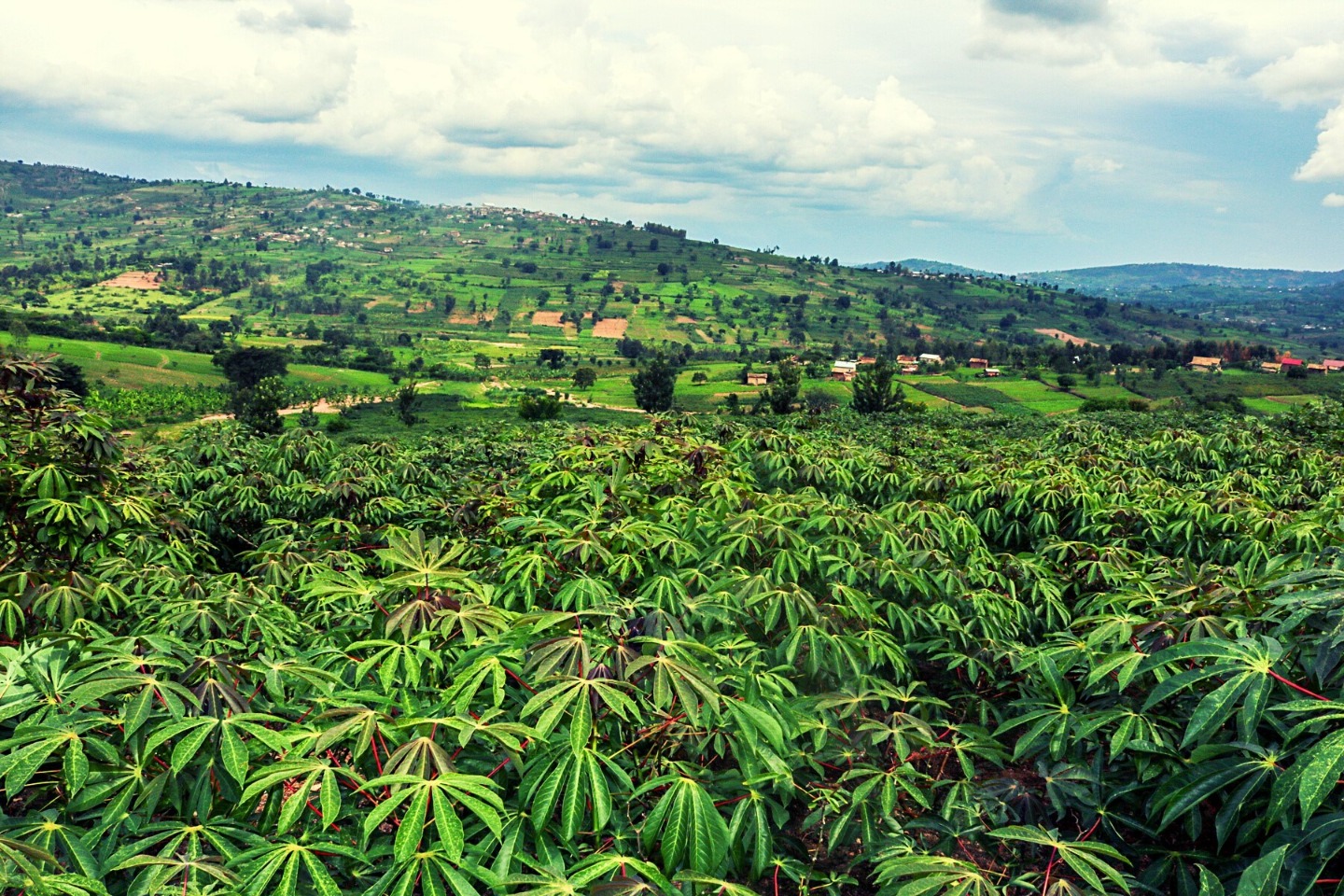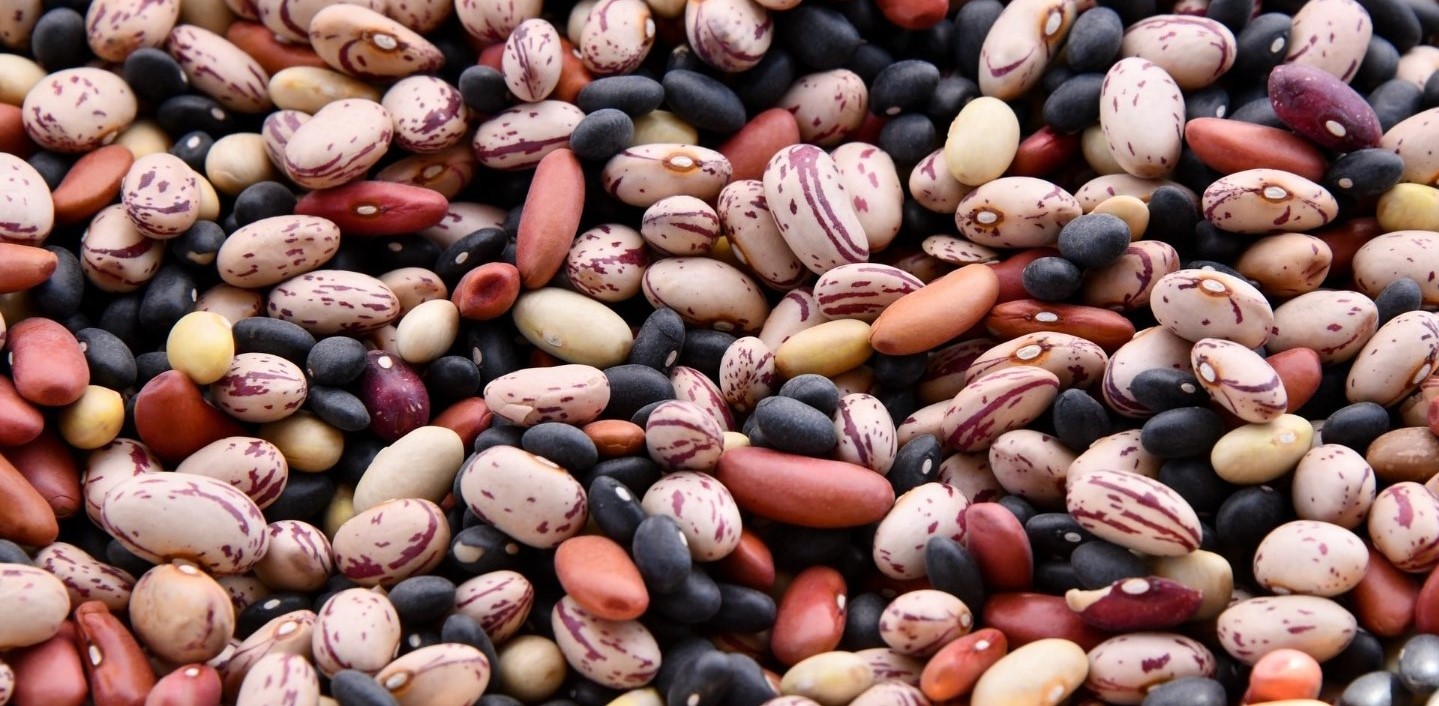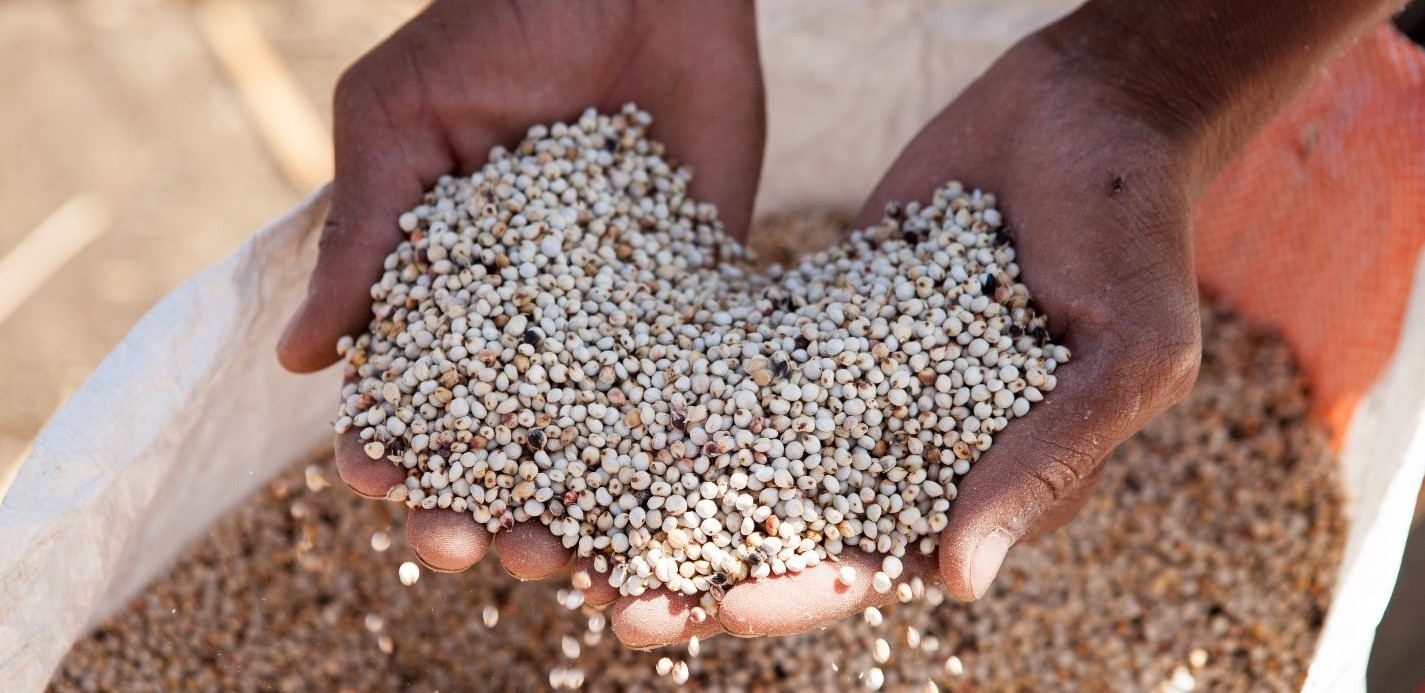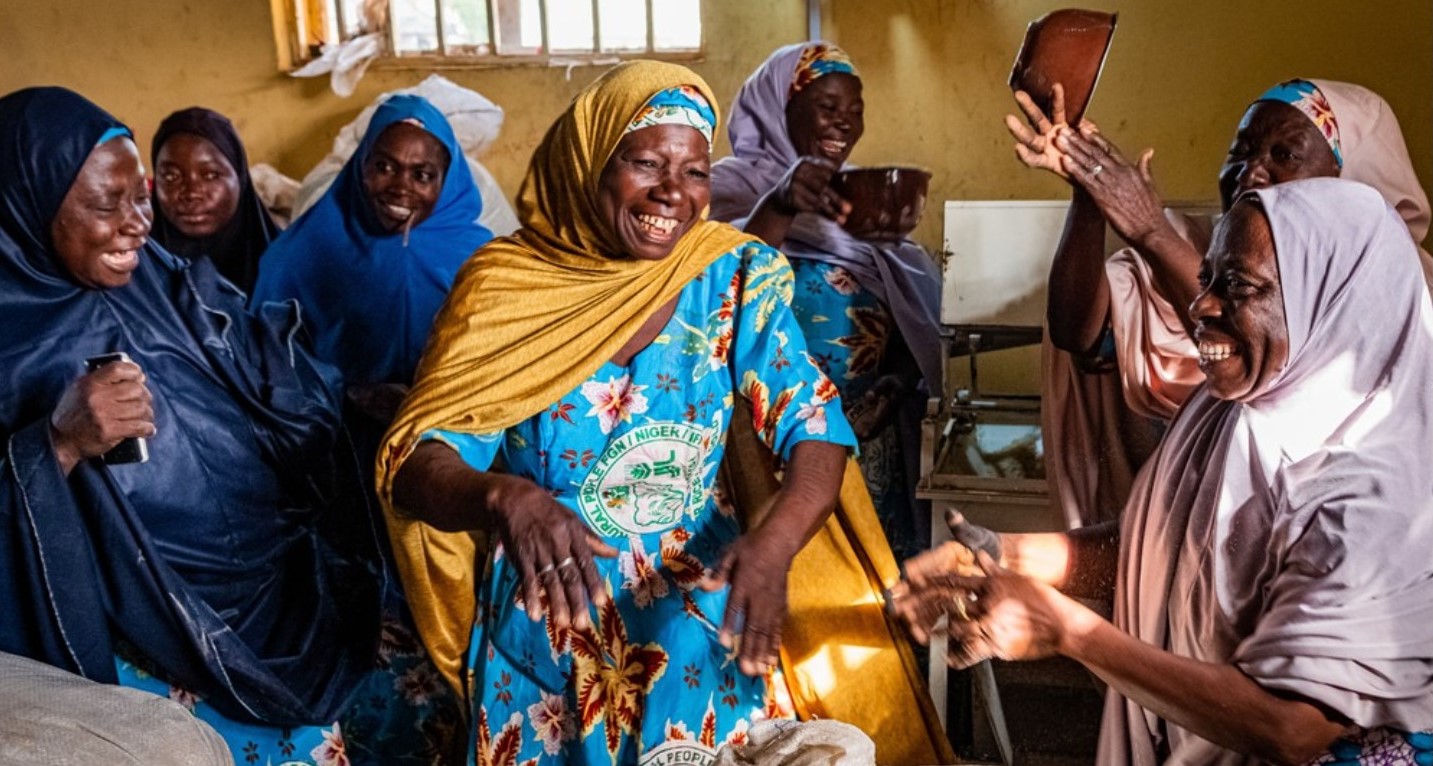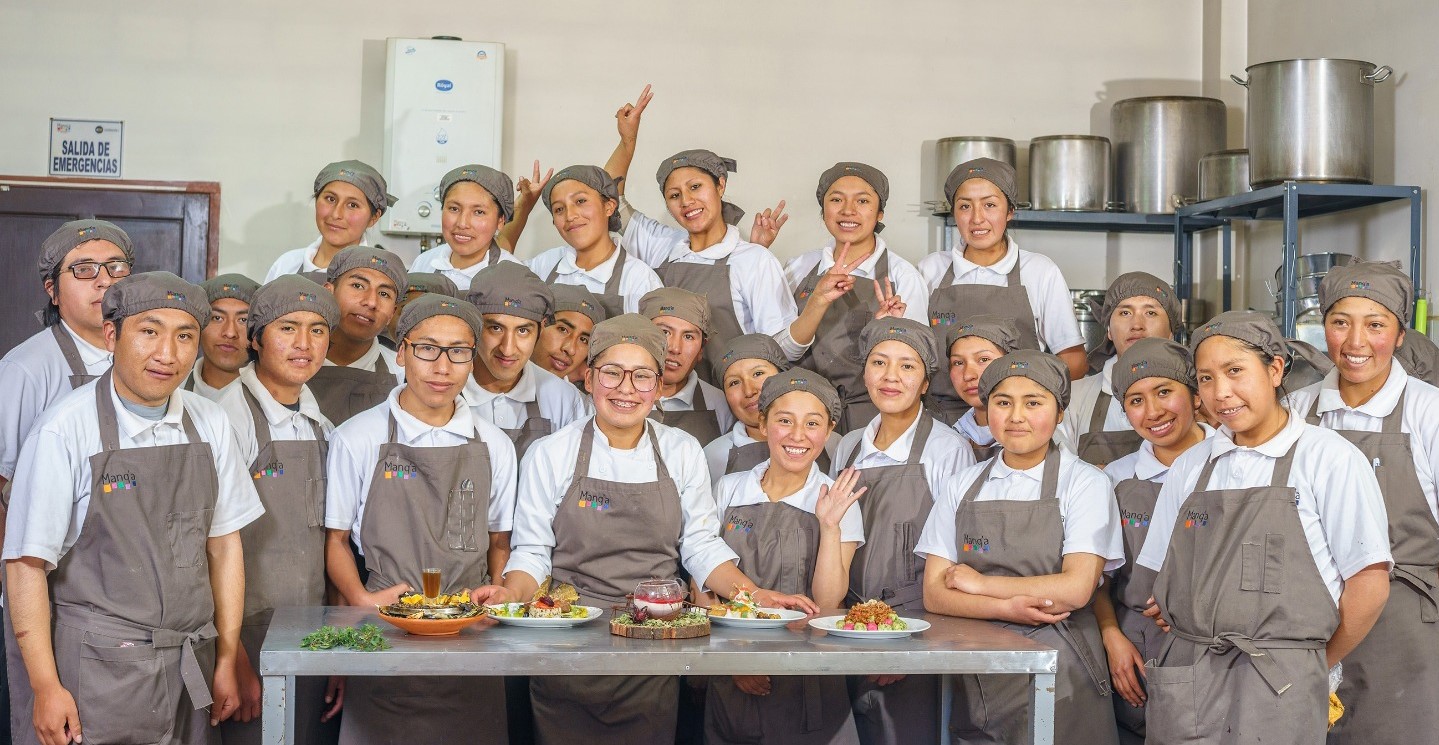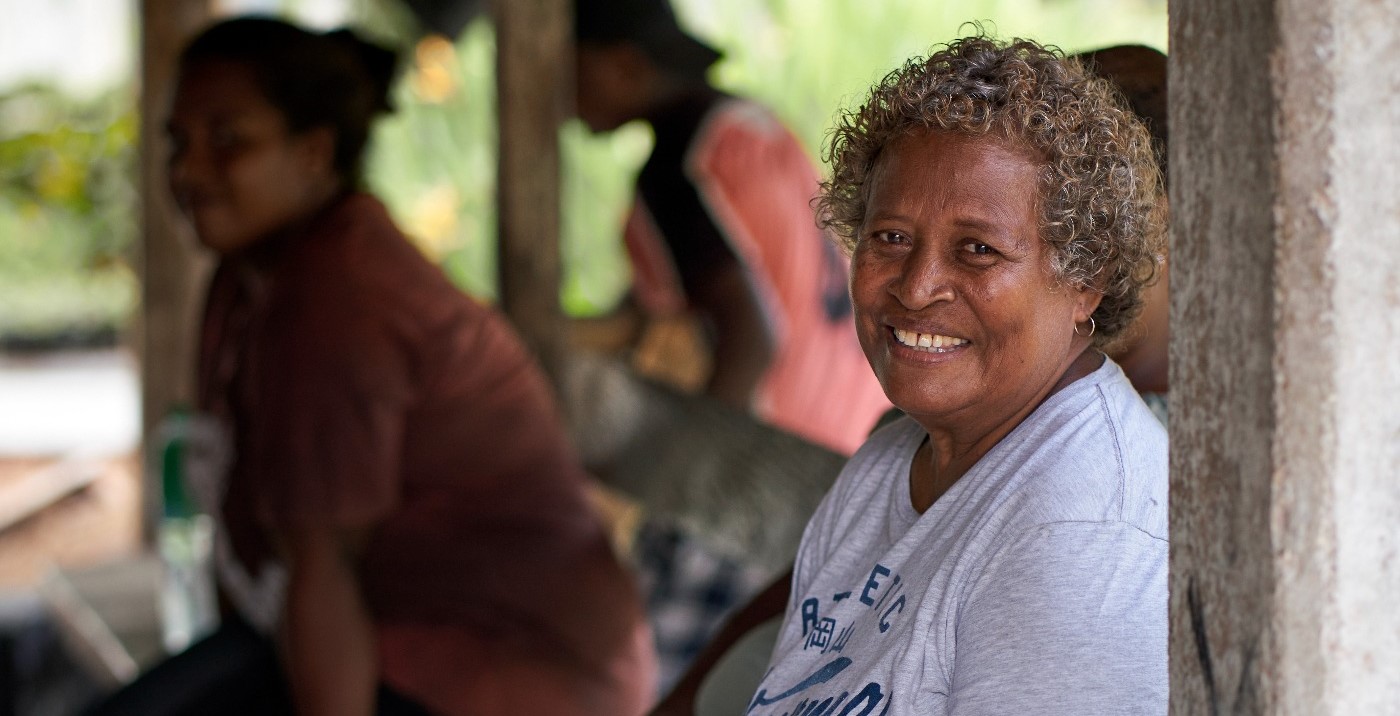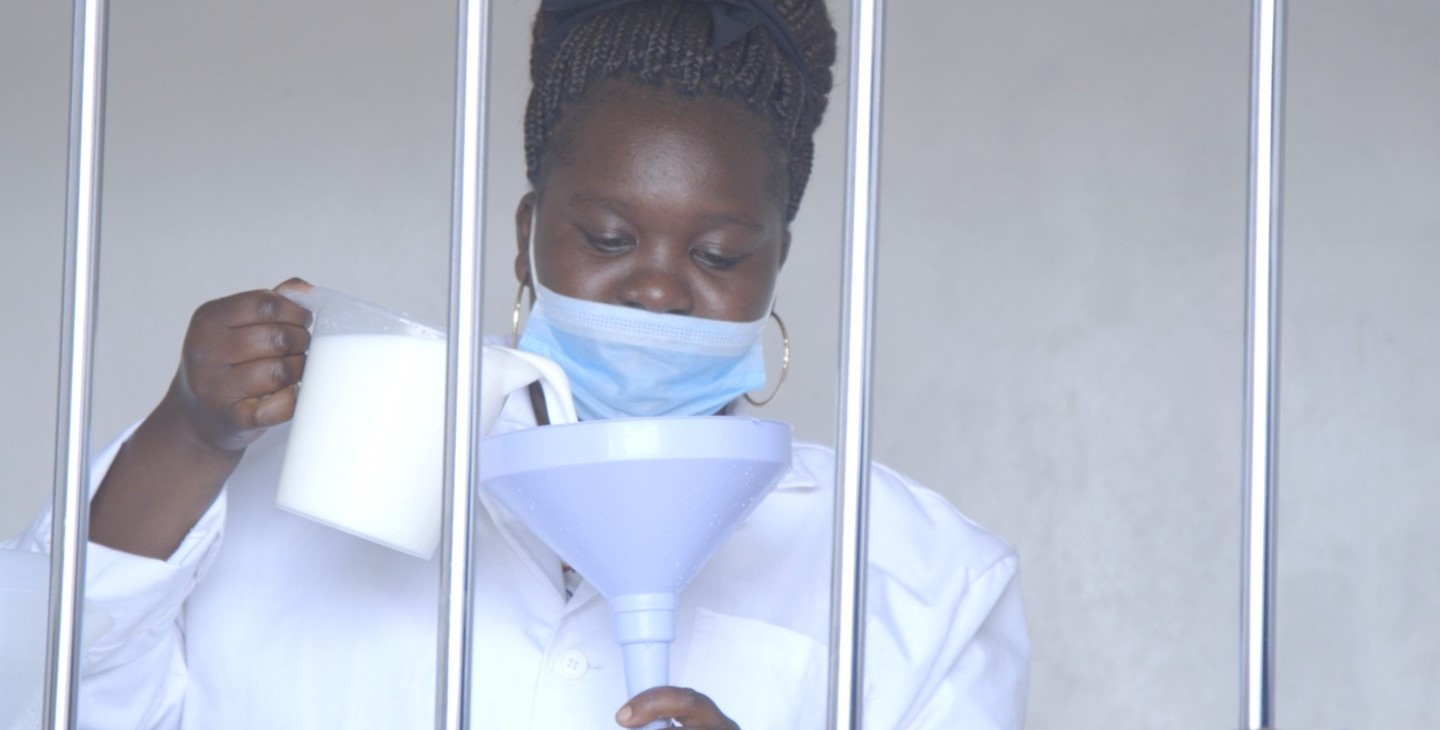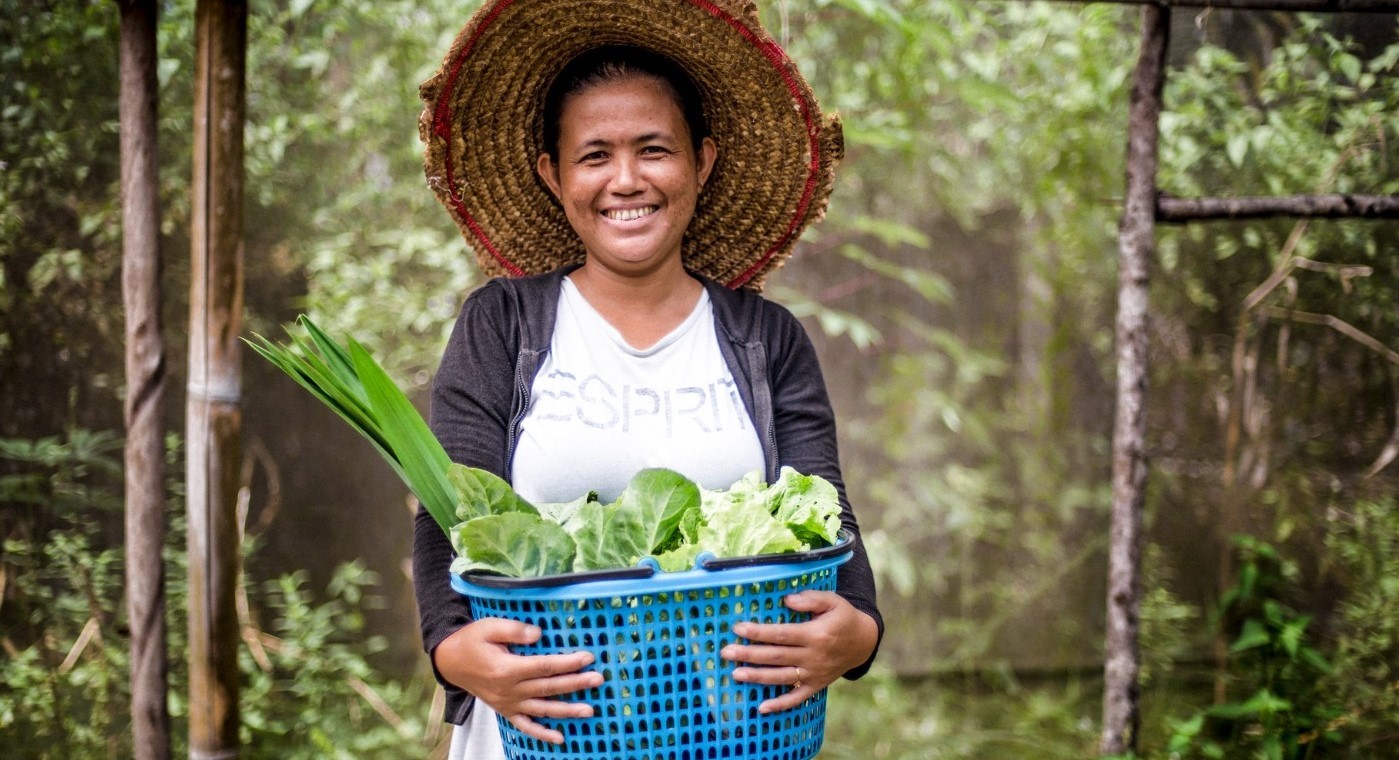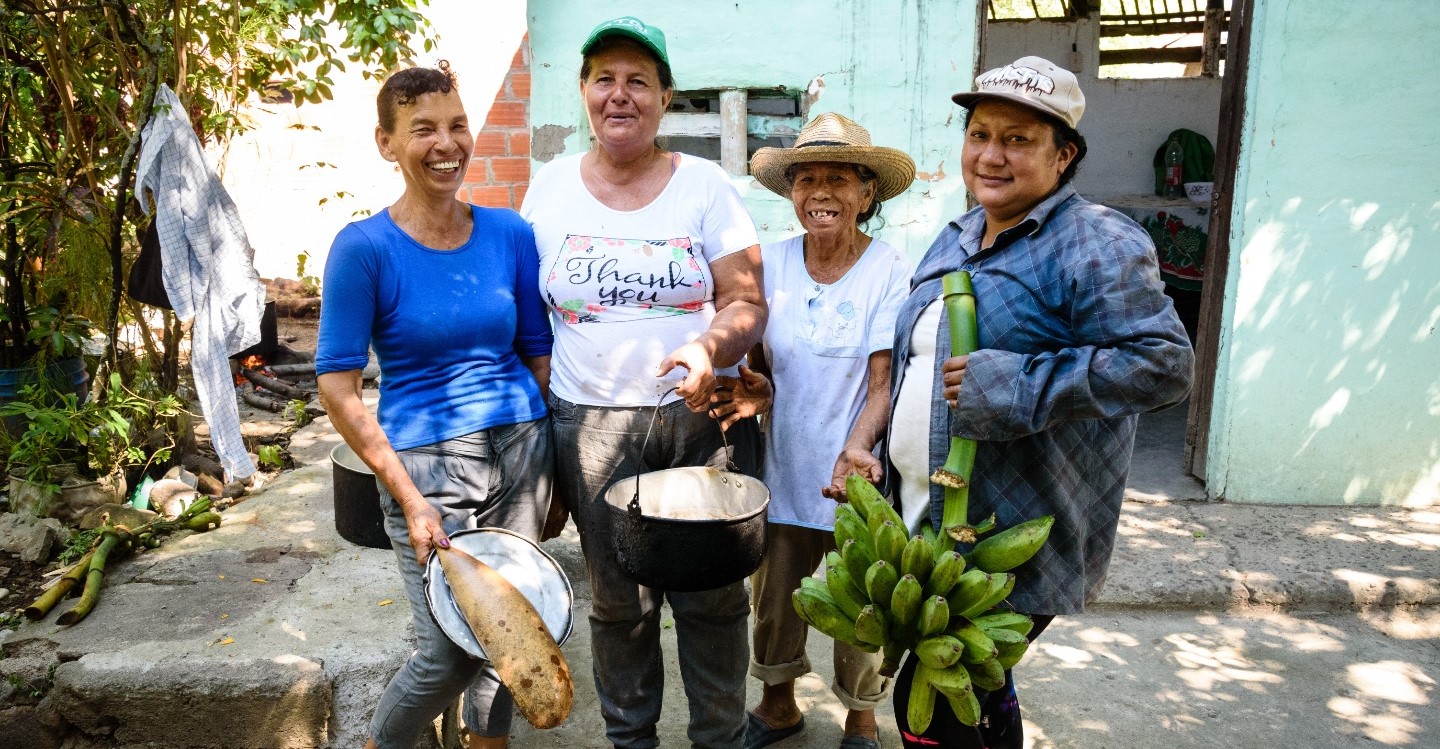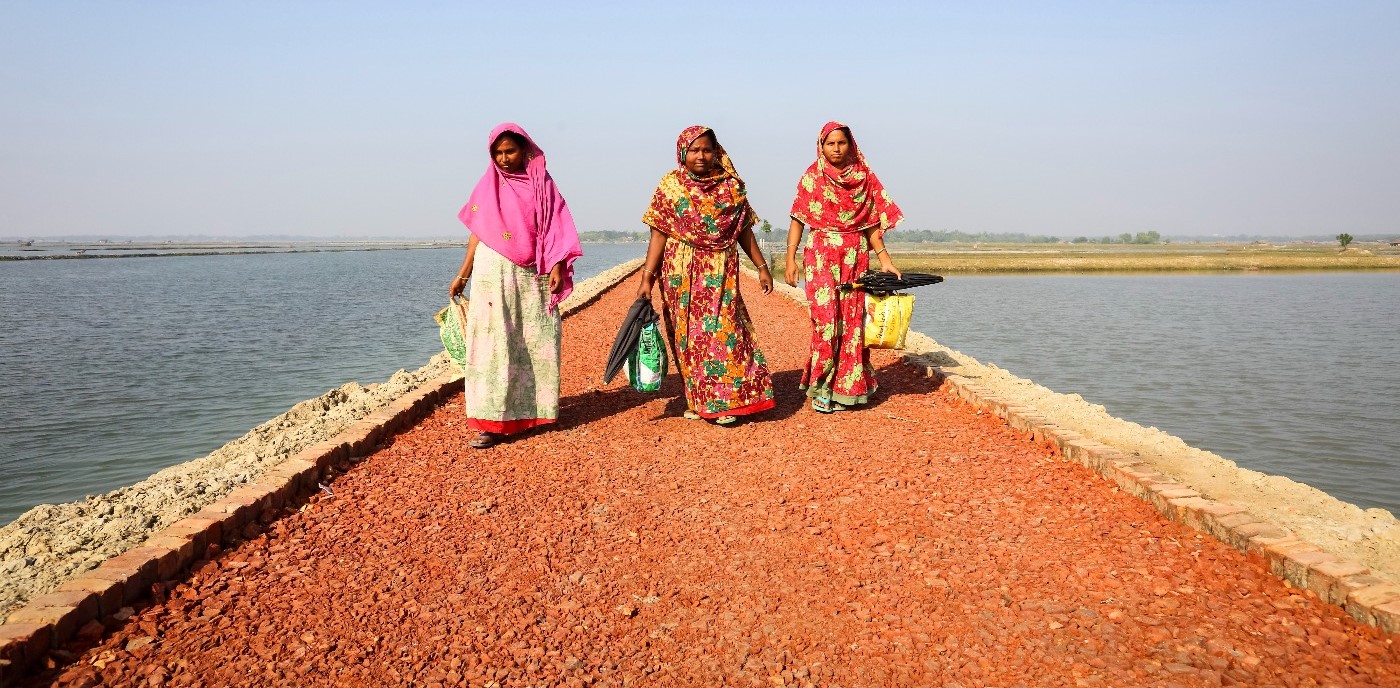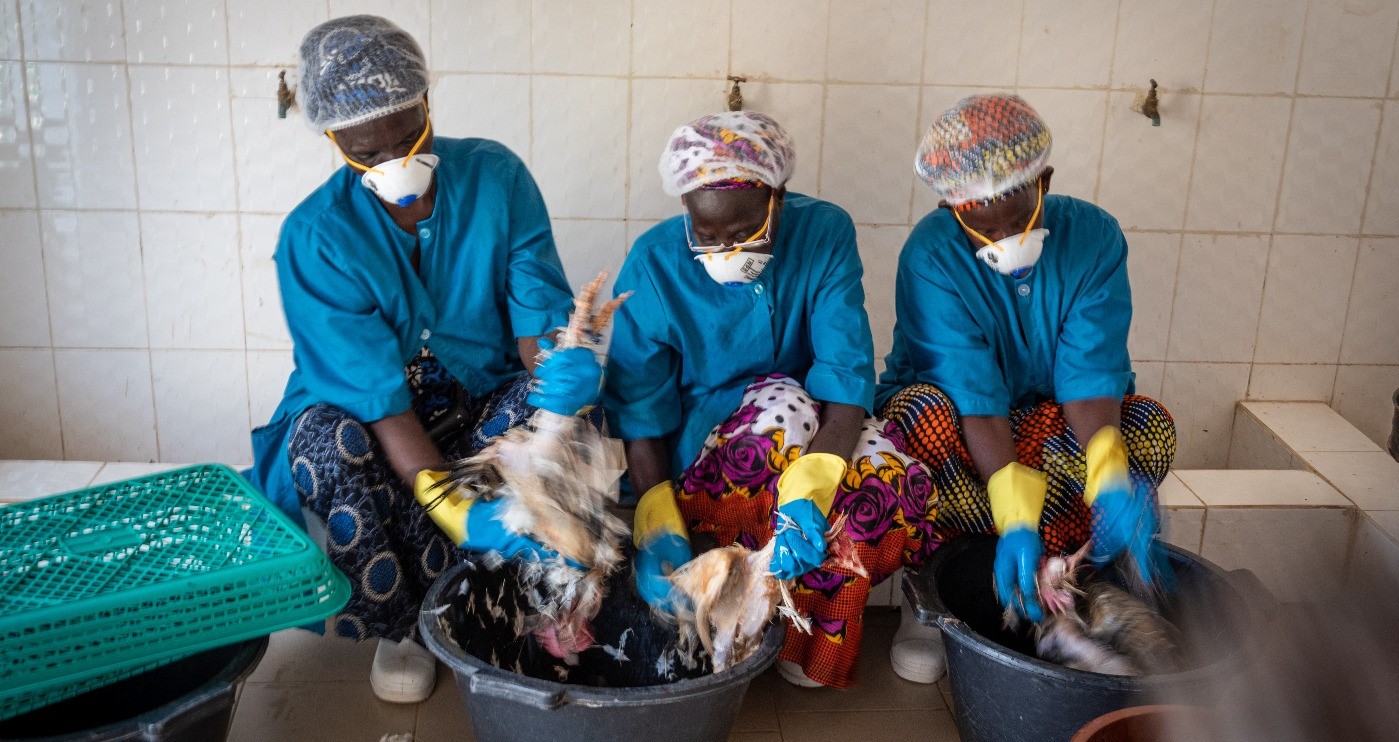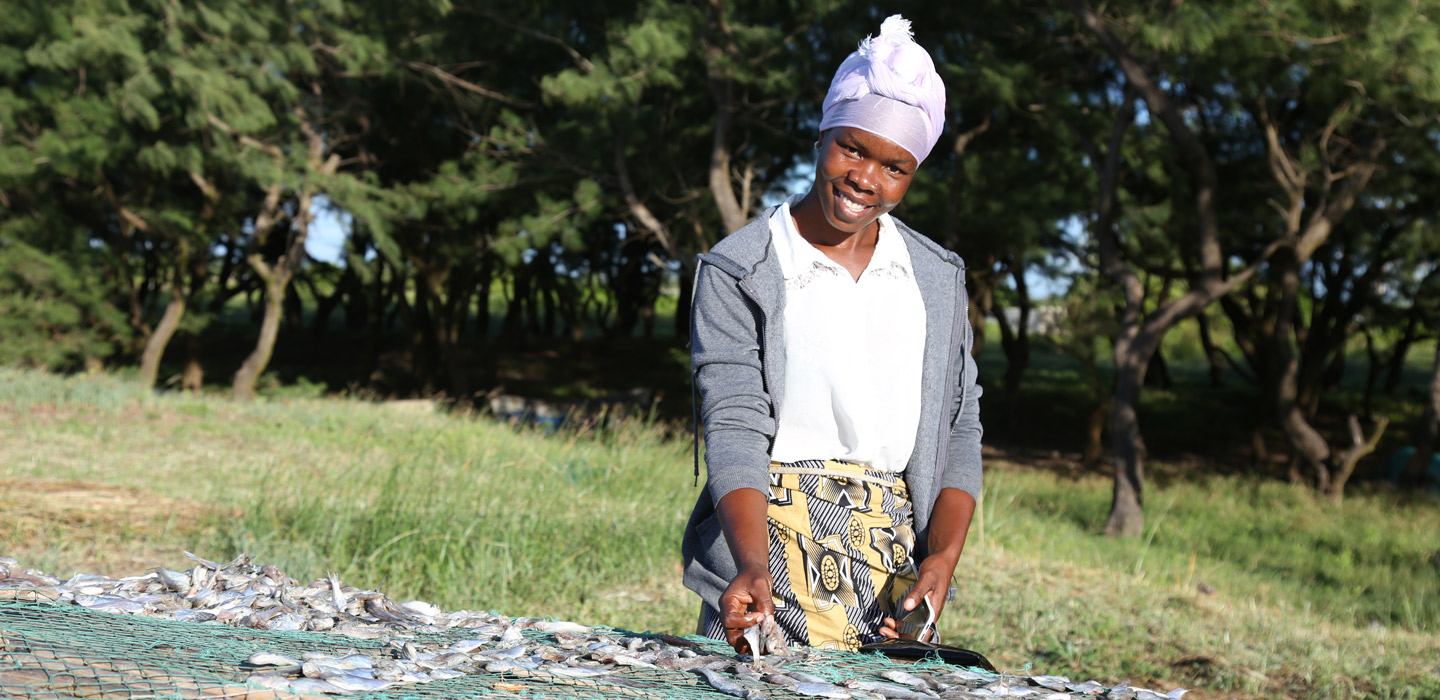Latest
Latest

Latest
Manual Submenu Topics
Search Results Filters
Search Results
Raising hope and opportunity in rural Tajikistan: Obidova’s story
Obidova is busy these days. Whether she’s setting up a new shelter for her birds or going to the markets to sell, her days are filled with taking care of her family and her poultry business. But just a year ago, things looked very different.
Preventing the next pandemic by integrating human, animal and environmental health
The COVID-19 pandemic has made it clearer than ever that human health is not just a matter of providing people with medical care. To avoid future pandemics, we need to recognize that the well-being of people, animals, plants and ecosystems must be addressed as a dynamic whole.
Re-imagining food systems through the climate–nutrition nexus
The food we eat plays a role in not just our health, but that of our descendants. How we grow, hunt, fish or gather it, how we process it and bring it to market, affects the world around us. These simple relationships are the foundation of the climate–nutrition nexus.
Small-scale farmers need decent wages - IFAD calls on world leaders to commit to action at Food Systems Summit
It is an outrage that rural small-scale farmers in developing countries, who grow a third of our global food, are paid a pittance for their work, said the President of IFAD who today asks world leaders attending the UN Food Systems Summit to take concrete actions to change this.
A glimpse into the Pacific food systems
Discover the specificities of food systems in the Pacific region, why they are particularly fragile, and the role of the island communities in protecting them.
Three ways IFAD can support digital agriculture in the Asia-Pacific region
Farmers and agribusinesses across the Asia-Pacific region are increasingly making use of new digital technologies. IFAD and Grow Asia have recently released a report exploring how these technologies are reshaping the region’s agriculture and how IFAD’s investments can accelerate the adoption of these technologies.
IFAD’s Rural Development Report 2021
Our food systems are failing us. From the climate, to the environment, to nutrition, to human health and well-being, they are not delivering the outcomes we all need. IFAD’s Rural Development Report 2021 describes the systemic issues that have led to the situation we are in, identifies priorities for transforming our food systems, and provides recommended actions to achieve meaningful change.
Global food systems must be disrupted and changed – new IFAD report recommends concrete actions for policymakers
Transforming global food systems to become more inclusive, fair and sustainable may seem an insurmountable challenge, yet there are concrete actions policymakers can take, according to a new report released by IFAD today.
Amplifying rural needs and voices: A conversation with Helene Papper
It’s clearer than ever before: to address global crises, the communities who implement solutions must be involved, their voices heard, their knowledge included. But how do we bring forward voices from the world’s most remote areas?
African small-scale farmers use radio and mobile phones to send a message of optimism and caution to world leaders attending Food Systems Summit
Small-scale farmers in sub-Saharan Africa are impacted disproportionately by climate change, poverty and undernutrition, yet a report released today shows many remain optimistic about the future of farming.
Investing in the foundations of Gambian agriculture
Roots are the essence of farming: they erect healthy plants and help grant a predictable and generous harvest. The IFAD-supported ROOTS project seeks to promote exactly that strength in The Gambia.
Small-scale producers are central to Africa’s forest restoration efforts
Small-scale farmers have an important role to play in restoring Africa’s forests. Two IFAD-supported projects in Eritrea and Kenya are helping these farmers engage in efforts that both restore local forests and have direct economic and social benefits for their communities.
Finding a way forward: Sector reforms in Lesotho’s wool and mohair industry
Lesotho’s efforts to nationalize its wool and mohair industry set off a cascade of unintended consequences. At the government’s request, IFAD and the WAMPP project commissioned a study to analyze the impacts of these regulations and inform future policy revisions.
The labour market dynamics of COVID-19
Over a year and a half into the COVID-19 pandemic, there’s still a lot to learn about how the labour market in developing countries is reshaping itself – especially in terms of gender dynamics. Our latest study tracks employment trends in Nigeria with both pre- and post-pandemic data.
Building a Great Green Wall: Four lessons learned from the World Bank assessment
Helping the people of the Sahel prosper requires a Great Green Wall stretching across Africa. IFAD is embarking on a series of projects to help build this “wall.” We recently sat down with the World Bank to learn from their successes and challenges across a decade of their own project implementations in this region.
Support for Syrian herders and farmers to safeguard livelihoods in the face of the COVID-19 crisis
IFAD has contributed a US$544,795 grant to alleviate the pressure of the COVID pandemic on the Syrian rural community.
Mainstreaming agroecology in the Asia-Pacific region
Agroecology is a holistic approach that integrates elements of ecology, economy, and society within a food system. It also supports the well-being of small-scale producers, especially in terms of their empowerment and social inclusion. IFAD has a long tradition of supporting agroecology practices throughout Asia-Pacific, especially the Himalayas region.
Global climate leader appointed Associate Vice President at UN rural development agency IFAD
More investments in innovations and knowledge are urgently needed to increase the ability of rural people to adapt to climate change and shocks, said Jyotsna Puri, a long-time advocate for climate change adaptation and evidence-based policy and big data, who today takes up the position of Associate Vice President of the Strategy and Knowledge Department at IFAD.
The Lare Milk Dealers find their niche
Milk processing is normally a profitable venture in Kenya’s Nakuru County, but the Lare Milk Dealers Youth Group struggled to enter the market at first. Thanks to trainings hosted by an IFAD-supported project and some innovative additions to their business model, they’re now thriving.
Agroecology can address food systems failures - new IFAD report
In its first comprehensive assessment of agroecology, the International Fund for Agricultural Development (IFAD) announced today that 60 percent of its projects use practices from this holistic approach to sustainable agricultural production.
Empowering rural women with Agroecological Logbooks
The video presents the main results of using the Agroecological Logbook methodology in projects supported by IFAD in Brazil.
Black jelly brings a more resilient future for rural Viet Nam
Light and refreshing, with a mild, earthy flavour, Vietnamese black jelly is the perfect end-of-summer treat. It’s already popular throughout Viet Nam and its neighbouring countries – and thanks to the work of local growers and an IFAD-supported project, it’s now destined for wider audiences.
Protecting biodiversity is crucial to fighting hunger - IFAD calls for increased investments ahead of World Conservation Congress
If we do not invest more in protecting biodiversity, development cannot be sustainable and we will not eradicate hunger or achieve the Sustainable Development Goals, said the President of IFAD ahead of his participation in the IUCN World Conservation Congress that begins in Marseille today.
Gender-focused solutions for the post-COVID return to rural areas
The COVID-19 pandemic has given rise to waves of internal migration as urban workers return to rural areas. IFAD must identify solutions to the challenges this phenomenon has created, and will continue to create, for rural agricultural development. This is especially critical from a gender equity perspective.
Restoration takes root: Nasreen’s story
Nasreen’s family was struggling to make ends meet. Now, thanks to an IFAD-supported project, she runs her own ecological farm that produces high-quality, chemical-free vegetables – all while it restores the local ecosystem.
The Government of Mali and Rome-based agencies launch a joint programme to build resilience among rural people
The Ministry of Rural Development of Mali, the three United Nations Rome-based agencies (FAO, IFAD and WFP) and G5 Sahel officially launched a joint programme to help rural people in Mali build their resilience to climate change, conflict and COVID-19 on 26 August in Bamako.
Building rural resilience through South-South and Triangular Cooperation: Results of the Third Call for Proposals under the China-IFAD SSTC Facility
Find out more about the four projects selected from the SSTC Third Call for Proposals.
Connecting Farmers to the Food Systems Summit – Episode 23
In this month’s episode, we continue our focus on the first-ever UN Food Systems Summit.
Returning to Brazil’s Gente de Valor project: Lessons on sustainable impact
The Gente de Valor project was designed to assist the sertanejos (those who live in Brazil’s semi-arid region). It featured a community-driven development approach that promoted active participation and local leadership. Five years after the project ended, IFAD returned to evaluate the project’s outcomes and the effects of this approach.
What we’re reading for World Water Week
Here’s a list of our favourite books and other resources about the state of water in our world and the way it intersects with our politics, economics and societies.
Community-driven change brings water security in Tonga
Eua Island is home to many of the Kingdom of Tonga’s natural resources. Recently, climate change and natural disasters have caused significant water supply challenges, but an IFAD-supported project – made possible by the islanders’ incredible community spirit – is working to change that.
The Greenthumb Youth Group casts their nets
The Greenthumb Youth Group hadn’t had much luck with traditional farming. But thanks to a grant to set up an aquaponics venture – combining crop farming and fish farming – their success is making waves all along the value chain.
Revitalizing the practice of shifting cultivation: A conversation with Dr Dhrupad Choudhury
Shifting cultivation is an indigenous food system practiced by millions of people across south and south-east Asia. A new resource book authored by Dr Dhrupad Choudhury, in collaboration with ICIMOD, is designed to guide policymakers and development professionals in sustainably transforming this practice.
Rural Youth Innovation Award honours youth leaders fighting COVID-19
IFAD believes in the tremendous innovative capacity of rural youth – and we take seriously our responsibility to support young people in their constant search for change and innovation. That’s why this year’s Rural Youth Innovation Award in Latin America and the Caribbean, a project financed by the China-IFAD SSTC Facility, focused on initiatives led by young people fighting the pandemic.
How small-scale producers can leverage the growing livestock market
With global production and consumption of meat projected to rise, livestock rearing is becoming an increasingly important income source for many small-scale producers. Recently, livestock farmers from around the world have been learning from each other via the SSTC framework.
How South-South and Triangular Cooperation is transforming coconut cultivation and processing in Viet Nam
All businesses, irrespective of their size, location, products, and services, depend on weather and climate. Finding and sharing solutions to climate-related challenges is at the centre of South-South and Triangular Cooperation.
Creating smoke-free kitchens in Nepal through Indigenous community empowerment
EcoHimal Nepal is a national non-government organization that works with rural mountain communities. They developed a project with NELHOS, another local organization funded by IFAD, in Rukuma and Chepuwa villages of Bhotkhola Rural municipality to develop ‘’smoke-free kitchens’’.
In Rwanda, public-private partnerships benefit small-scale cassava farmers
Cassava is one of Rwanda’s most important staple crops, but market access remains a challenge. The Ingabo Syndicate, an organization of cooperatives, has been helping its cassava producers find markets for over two decades – most recently, through public-private partnerships.
2021 Agrobiodiversity Innovation Challenge
Innovators who aim to mainstream agrobiodiversity solutions into the agri-food sector are welcome to submit applications to the Agrobiodiversity Innovation Challenge.
It’s time to think small
Small-scale farmers and the rural poor have a crucial role to play in the restoration of ecosystems and the conservation of natural resources.
Annual report 2020: 123 million rural people reached as IFAD steps up fight against hunger, poverty and exclusion
As the COVID-19 pandemic raged around the world pushing millions more people into hunger and poverty, IFAD increased its support for the most vulnerable and marginalized people, according to the IFAD Annual Report 2020 released today.
El proyecto Puentes fomentará los vínculos entre gastronomía y agricultura familiar para crear empleo y oportunidades económicas para los jóvenes de las zonas rurales y peri-urbanas de Bolivia, Colombia y Honduras
El proyecto Puentes/Rural For Young People, que creará empleo y oportunidades económicas para casi 5.000 jóvenes de entre 16 y 35 años de las zonas rurales y peri-urbanas de Bolivia, Colombia y Honduras, echó a andar ayer tras su lanzamiento virtual.
Responding to the challenges of a year like no other: IFAD’s 2020 Annual Report
IFAD’s Annual Report provides a concise, compelling and interactive discussion of how we addressed the challenges of the last year.
New horizons for the Ingobor Youth Group
Meet Ingobor, a group of 20 former bus drivers and conductors who pooled their resources and established a successful dairy business.
IFAD and partners to announce upcoming coalition to support public development banks’ financing of sustainable and equitable food systems
Creating sustainable and equitable food systems that benefit the world’s most vulnerable people will require substantial investments – by some estimates as much as US$350 billion per year over the next decade.
How can International Financial Institutions invest to ‘’build back better’’?
Given the already-high levels of poverty and vulnerability faced by small-scale rural producers, the pandemic has hit them and their families particularly hard. So, what should be the priorities for organisations, like IFAD, in the coming years?
Bold actions for gender equality and women’s empowerment in food systems
What does a gender just and equitable food system practically look like? A just and equitable food system is one in which women’s roles change from being invisible to being visible.
Putting rural small-scale producers at the centre of food systems’ transformation – join IFAD during the Food Systems pre-Summit (26-28 July 2021)
To achieve a future where every person has access to affordable and healthy food, where food production protects the environment and biodiversity, and where the people who produce our food are paid decently for their labour, food systems must radically change, and the needs of rural people must be at the centre.
Spanish filmmaker wins first IFAD COPEAM Award at Sicilymovie - Festival del Cinema di Agrigento
“Beyond the Glacier” – a short documentary which addresses the impact of climate change and human activity on fishing communities in Kazakhstan - has taken a top prize at the Sicilymovie, with Spanish director David Rodríguez Muñiz receiving the first 2021 IFAD COPEAM Film Award today.
Food systems that ignore the needs of poor rural people are doomed to fail, warns IFAD President ahead of Food Systems pre-Summit
If we ignore the challenges and needs of rural people in the world’s poorest countries, our attempts to create more equitable and sustainable food systems are doomed to fail, said the President of IFAD ahead of the UN Food Systems pre-Summit that begins in Rome on Monday.
